News

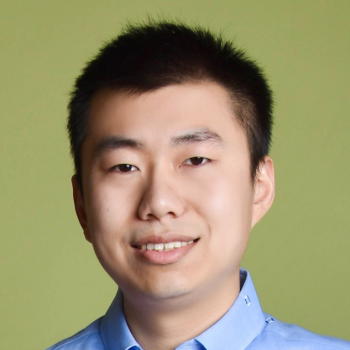
Victor Yu promoted to Assistant Scientist in the Materials Science Division at Argonne National Laboratory, effective January 2024.
Congratulations Victor!
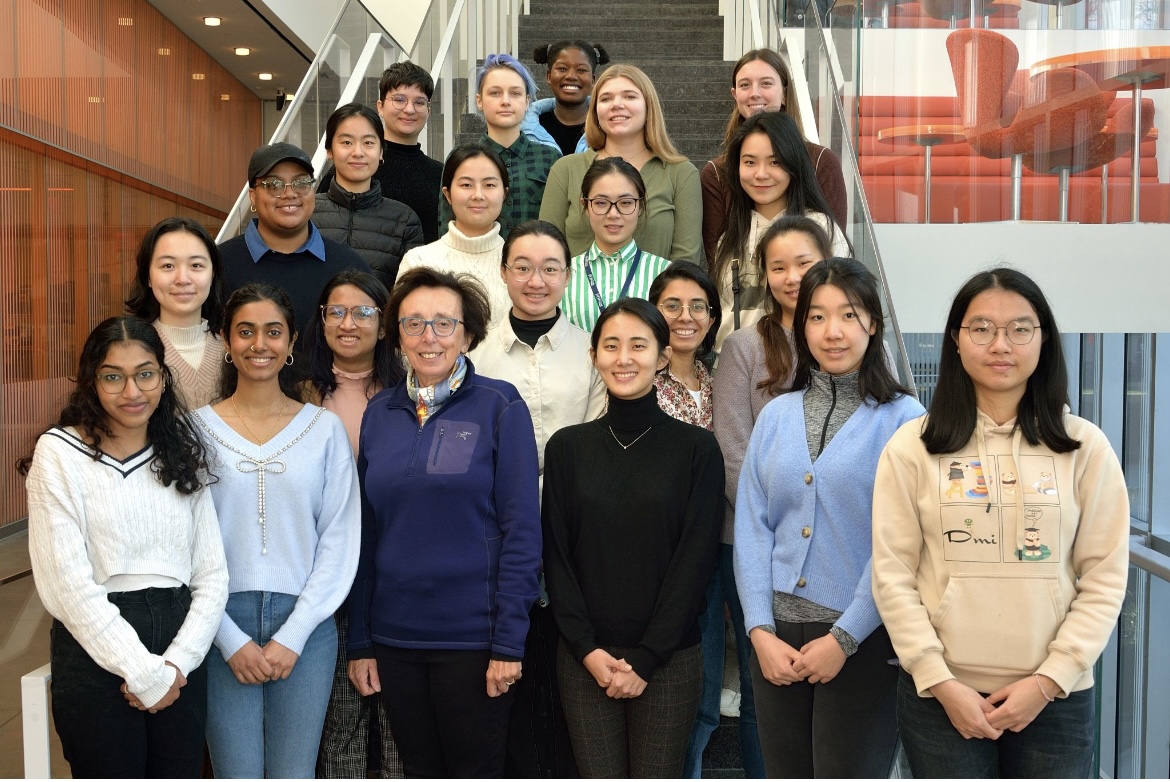
Giulia Galli presented the Penn Institute for Computational Science Grace Hopper Lecture (12/7/2023)
Giulia Galli presented the Penn Institute for Computational Science Grace Hopper Lecture, celebrating women in STEM and engineering. Galli discussed her work in theoretical and computational strategies based on quantum mechanical calculations. Read more here.
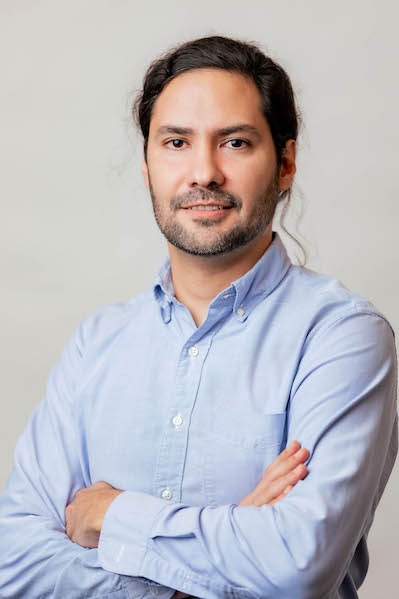
Congratulations to Dr. Pablo Zubieta from the de Pablo group for being awarded the 2023 Maria Lastra Excellence in Mentoring Award for Postdoctoral Researchers ! (December 2023)
Congratulations, Pablo!

Congratulations to Yu Jin who successfully defended his thesis on “First-principles Study of Excited States and Optical Properties of Quantum Materials” (12/06/2023)
Congratulations, Yu!

MICCoM renewed for three more years, until August 2026 (June 2023)
Congratulations to the wonderful team of PIs, students and post-docs!
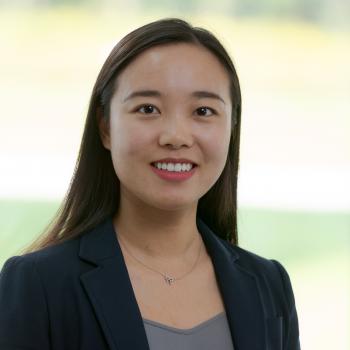
MICCoM welcomes Jie Xu from Argonne National Laboratory, as Principal Investigator. (June 2023)
Welcome Jie!
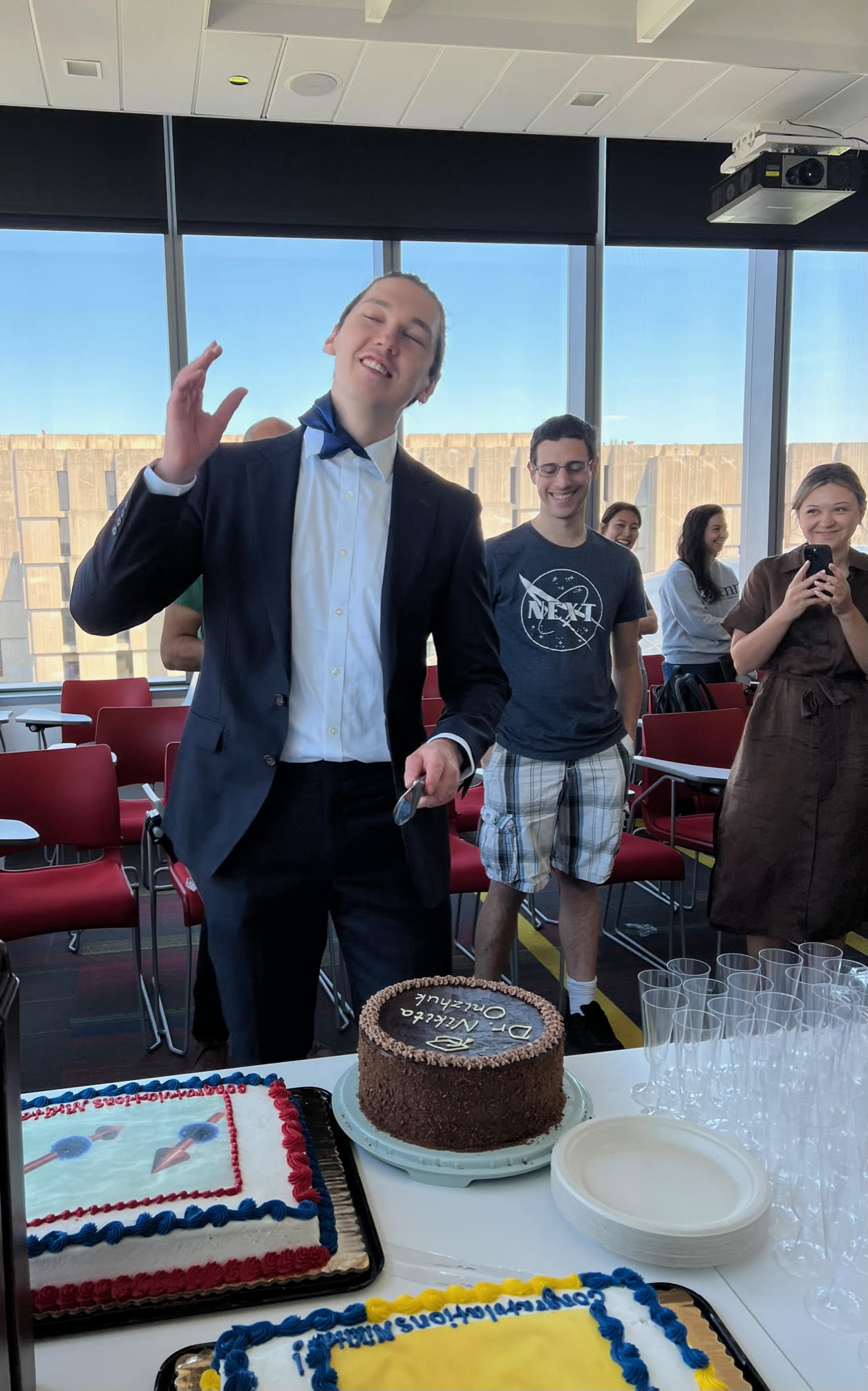
Congratulations to Nikita who successfully defended his PhD thesis today entitled “Understanding the Magnetic Environment of Spin Qubits from First Principles” (05/30/2023)
Congratulations, Nikita !
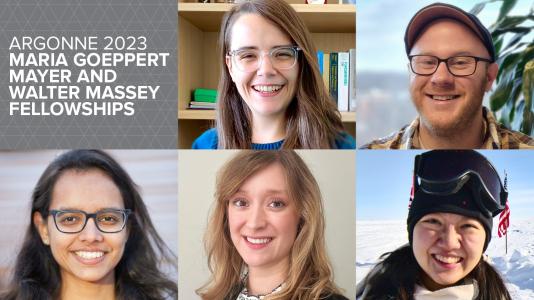
Argonne names newest Maria Goeppert Mayer and Walter Massey Fellows (04/24/2023)
Congratulations to Vrindaa and her peers: the Maria Goeppert Mayer Fellows are James Cornelison, Vrindaa Somjit, Mary Elizabeth Wagner and Cyndia Yu. The Walter Massey Fellow is Amanda Carr. Learn more from the Argonne press release here.
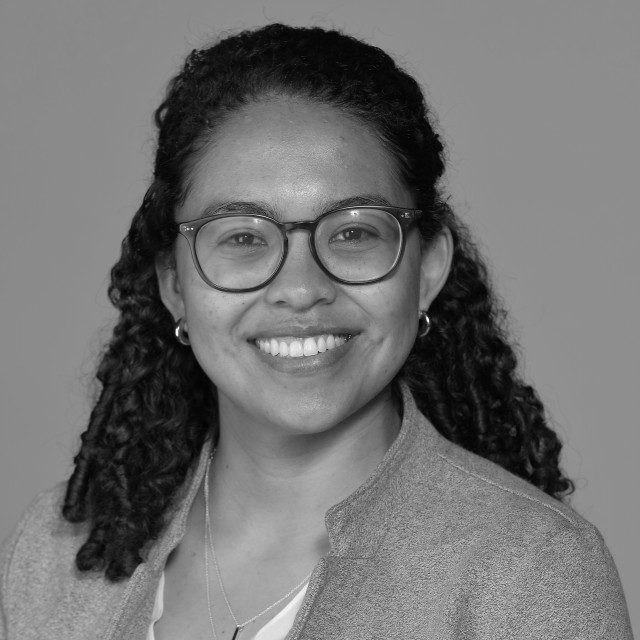
Congratulations to graduate student Viviana Palacios from the de Pablo group for her best poster award at the 2023 APS meeting in Las Vegas, for her work on simulations of light-matter interactions in liquid crystals (03/2023)
Congratulations Viviana !
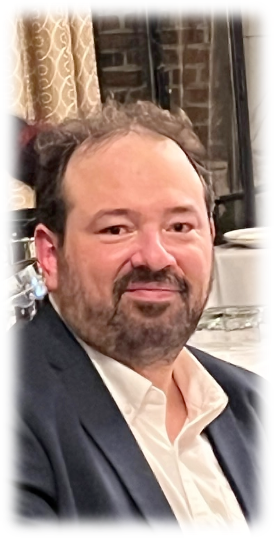
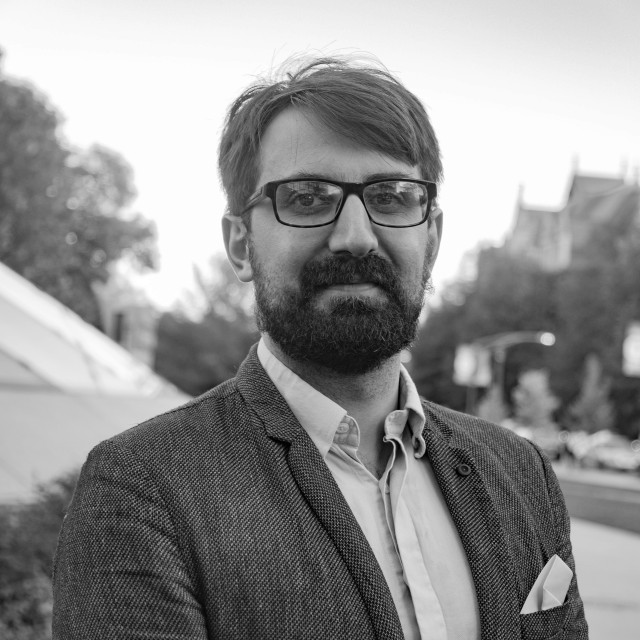
Congratulations to post-doctoral fellow Ludwig Schneider from the de Pablo group for being selected as Schmidt AI for Science Fellow (01/2023)
Congratulations Ludwig !
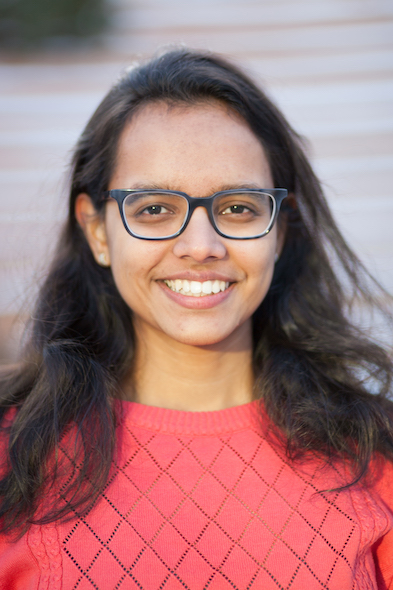
Vrindaa Somjit named Maria Goeppert Mayer fellow by Argonne National Laboratory. (12/20/2022)
Congratulations Vrindaa!
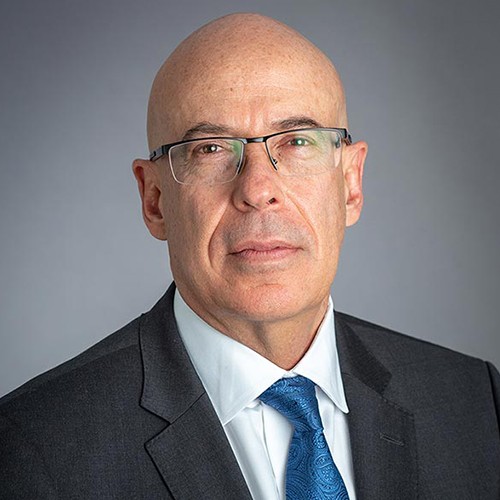
Juan de Pablo receives inaugural Bennett Family Award for Collaboration in the Science of Wellness (12/08/2022)
The Bennett Family Award recognizes individuals engaged in collaborative research that merges sciecne and wellness for the betterment of human health. The PME provides more information on his recognition here.
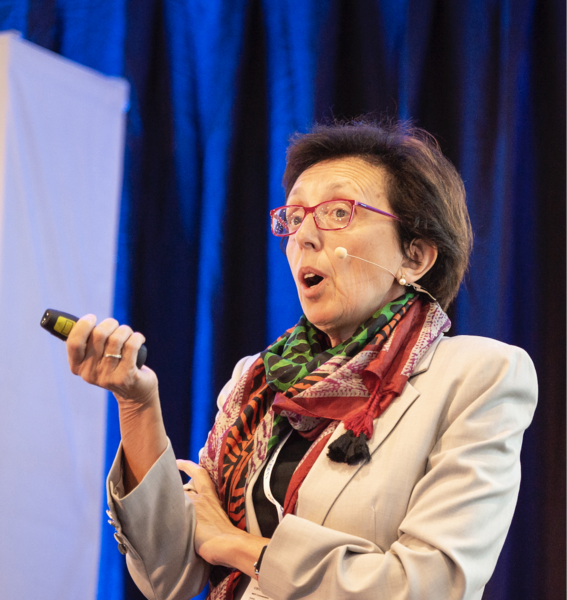
Giulia Galli named the recipient of the Lifetime Achievement Award 2022 by the foundation of Italian Scientists and Scholars in North America (ISSNAF) (10/19/2022)
The ISSNAF Lifetime Achievement Award "celebrates outstanding individuals of Italian origin who have honored Italy and given a significant contribution to research, leadership, and mentorship." More information about the foundation and the award can be found here.
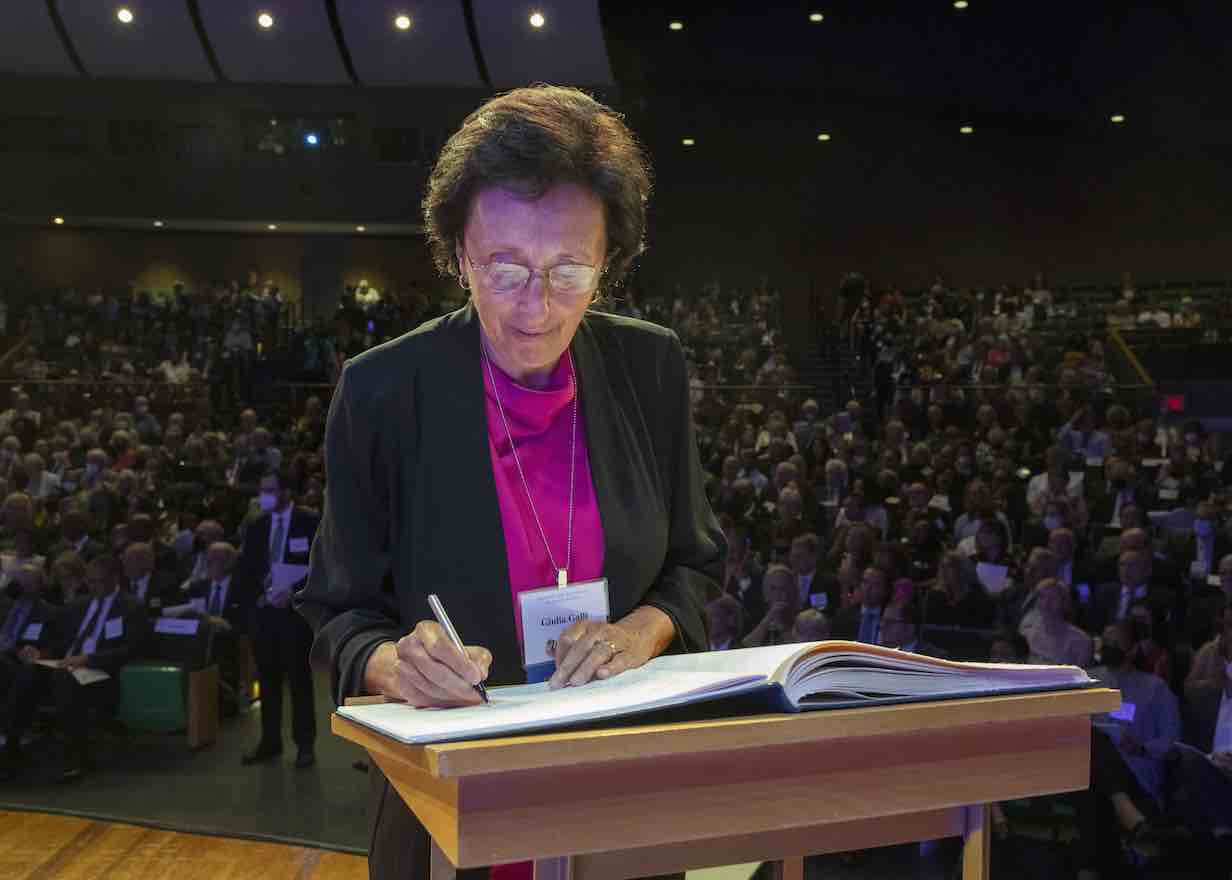
Giulia Galli inducted into the American Academy of Arts and Sciences (09/10/2022)
Giulia signed the Book of Members at the Induction Ceremony that celebrated recently elected artists, scholars, scientists, and leaders in the public, nonprofit, and private sectors.
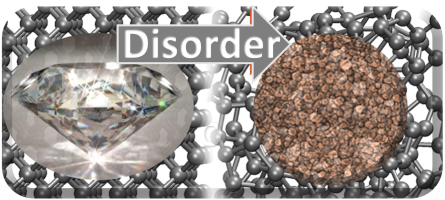
Work on Disordered Carbon Featured by Pritzker School of Molecular Engineering News (07/18/2022)
A recent paper titled Influence of nuclear quantum effects on the electronic properties of amorphous carbon, published in PNAS, demonstrated the effect of nuclear quantum motion on the electronic structure of disordered carbon. This study by MICCoM researchers has important implications not only for future modeling of amorphous carbon, but for other light amorphous solids as well. The work was recently featured by PME news.
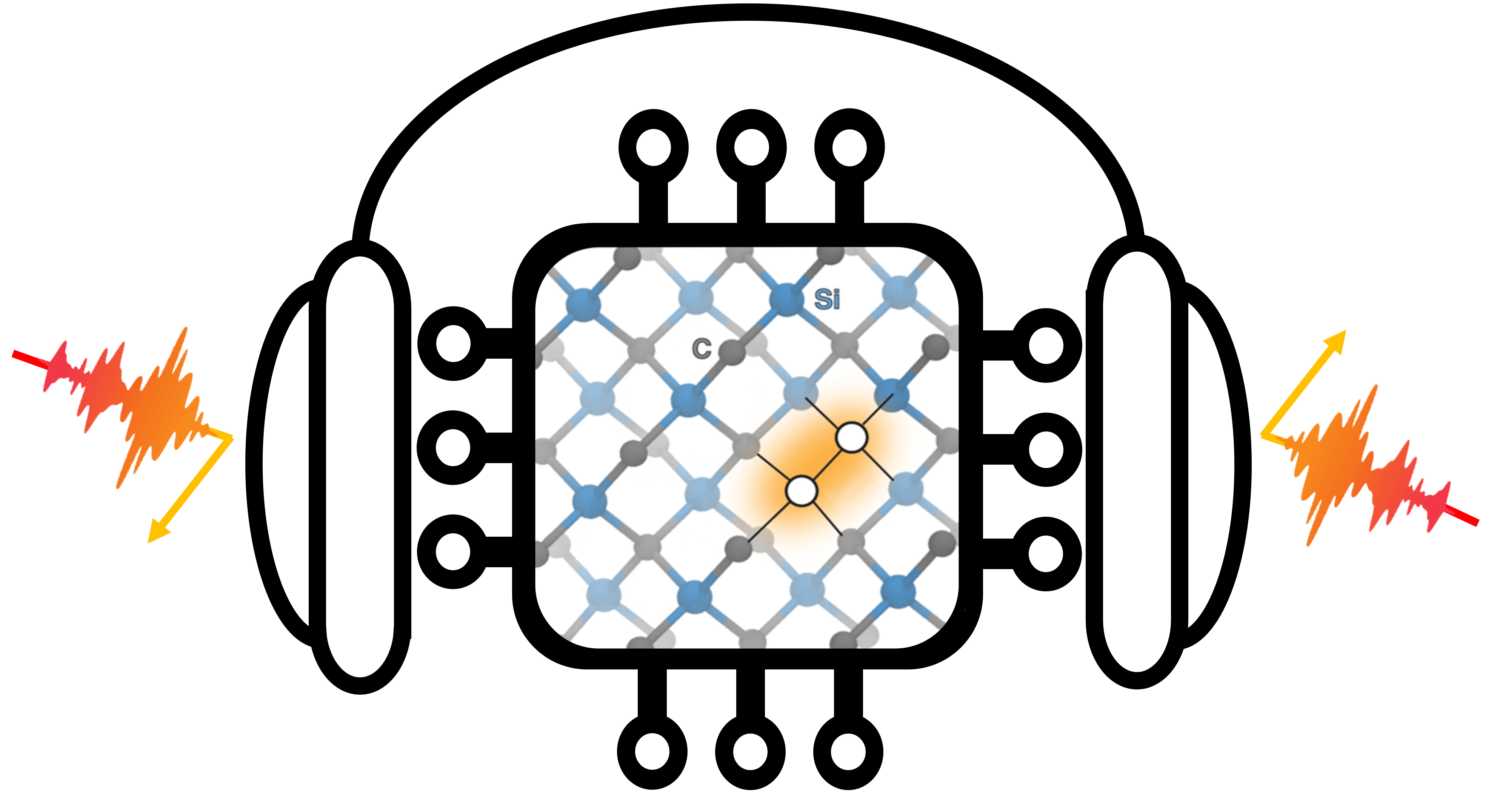
Recent Work on Quantum Simulations of Material Properties Featured by Argonne National Laboratory News (5/24/2022)
Argonne National Laboratory featured the progress of MICCoM scientists in simulating defect properties on noisy quantum computers. The study titled Simulating the Electronic Structure of Spin Defects on Quantum Computers was recently published in the PRX Quantum journal and shows that even the currently available, nosiy quantum computers may yield accurate results for the electronic structure of correlated spin defects in solids.
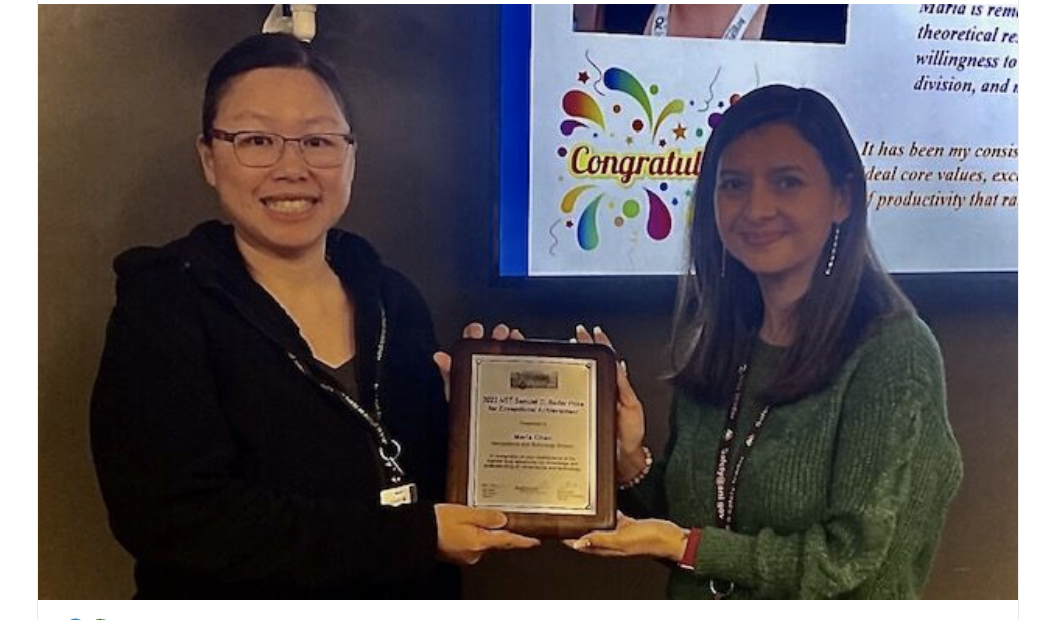
Maria Chan recognized with two major awards from Argonne National Laboratory: the Sam Bader Award and the Physical Science & Engineering Directorate Excellence Award (Fall 2022)
Argonne annually selects individuals and teams who have distinguished themselves through outstanding achievement and personal excellence for this honor. The Argonne News Office provides more details about this year's awards here.

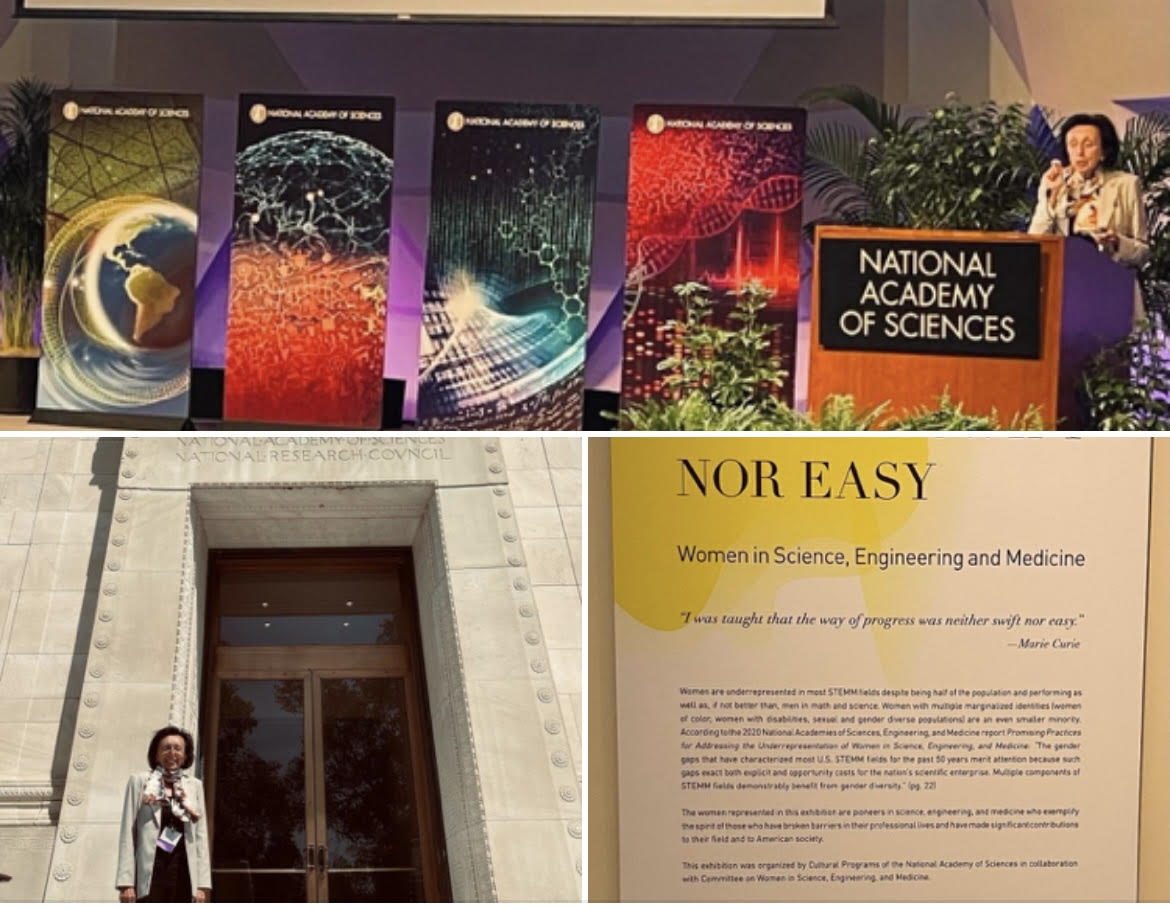
Giulia Galli Delivers Talk at Annual NAS Meeting Representing Section III (4/30/2022)
Giulia Galli, who was elected to become a member of the National Academy of Science (NAS) in 2020, delivered a talk at the annual meeting of NAS representing Class III's section on Applied Physical Sciences. A recording of her talk can be found here.
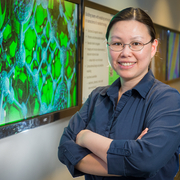
Maria Chan named Associate Editor at Chemistry of Materials (04/25/2022)
Chemistry of Materials is a prestigious peer-reviewed journal by the American Chemical Society. As an Associate Editor, Chan will be involved in the journal's activities and future direction. More information about her appointment can be found here.

Major Update to PyCCE 1.0 Released! (4/11/2022)
The main changes from the previous version include:
- Support for several central spins! Check out a new tutorial to see how to use PyCCE to study the entanglement between two dipolarly coupled NV centers in diamond.
- Convenient definition of the bath spin states through spin attributes.
- Expanded the control over pulse sequences.
- Added ability to define your own single particle Hamiltonian.
- Significant overhaul of computational expensive parts of the code with Numba. This makes the first run of PyCCE quite slow, but after compilation it should run observably faster.
- Various bug fixes and QoL changes.
The updated documentation and install instructions can be found here.
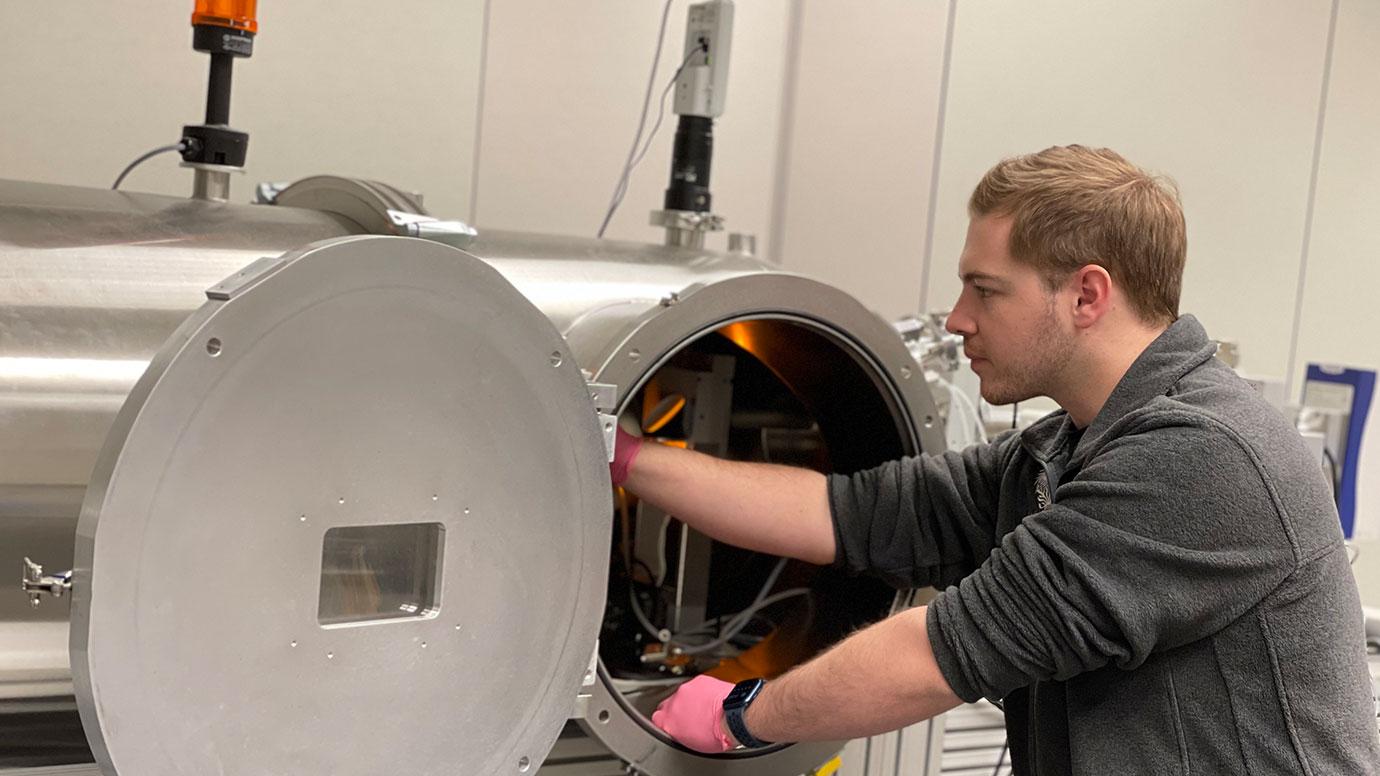
Photo Credit:
Talapin Lab/University of Chicago
Paper on self-assembly of nanocrystals into strongly electronically coupled all-inorganic supercrystals Featured by Phys.org and UChicago News (03/25/2022)
The Science paper titled Self-assembly of nanocrystals into strongly electronically coupled all-inorganic supercrystals describes a new approach to create hierarchical materials from various nanoscale building blocks. The strong electronic coupling, achieved for the first time in reversibly assembled nanocrystal arrays, opens up opportunities for rational electronic structure engineering. The study-- a collaboration between Talapin group at UChicago, de la Cruz group at Northwestern, and researchers at UC Berkeley, Technische Universität Dresden, Arizona State University and SLAC -- was conducted by using various experimental and computational techniques. The research project was recently featured by phys.org, UChicago news and various other media outlets.
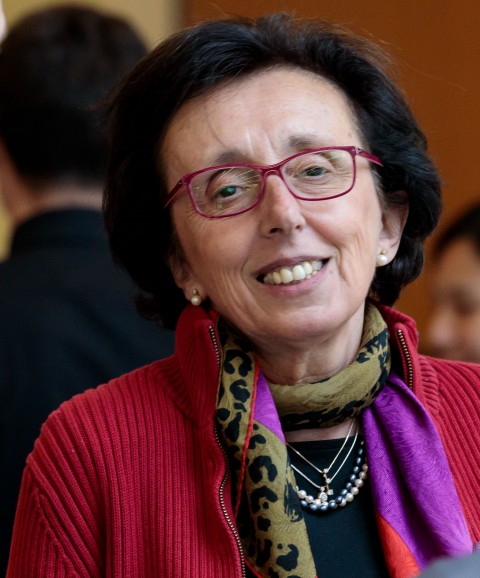
Giulia Galli awarded 2022 Aneesur Rahman Prize by the American Physical Society (03/15/2022)
Giulia Galli has been awarded the 2022 Aneesur Rahman Prize for Computational Physics. She received the prestigious award for "the development of theoretical methods to compute and engineer the electronic and structural properties of molecules and materials, broadening the applicability of first-principles computational approaches to multiple disciplines, including nanoscience, and for many predictions subsequently confirmed experimentally."

Paper on Formation of Spin Defects in Silicon Carbide Featured by Argonne, Phys.org, and PME News (12/15/2021)
The Nature Communications paper titled Stability and molecular pathways to the formation of spin defects in silicon carbide presents classical and first-principles calculations that elucidate spin defect formation processes in silicon carbide. The study-- a collaboration between the Galli and de Pablo groups-- was conducted by using molecular dynamics, enhanced sampling, and density functional theory, and coupling computer codes developed within the MICCoM center. The research project was recently featured by phys.org, Argonne News, and PME News.
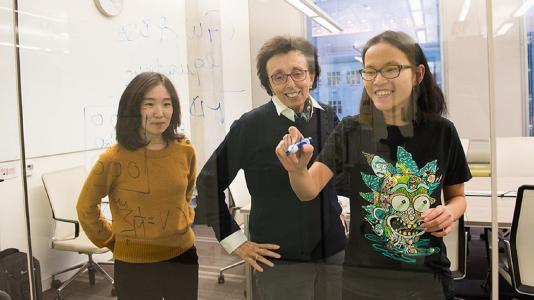
MICCoM Center's Activities Highlighted on UChicago PME and Argonne News (12/10/2021)
The activities of the MICCoM center were recently highlighted on UChicago PME News and Argonne News. MICCom develops advanced open-source software tools to thelp the scientific community model, simulate, and predict the fundamental properties of materials in order to create new, cutting-edge technologies.
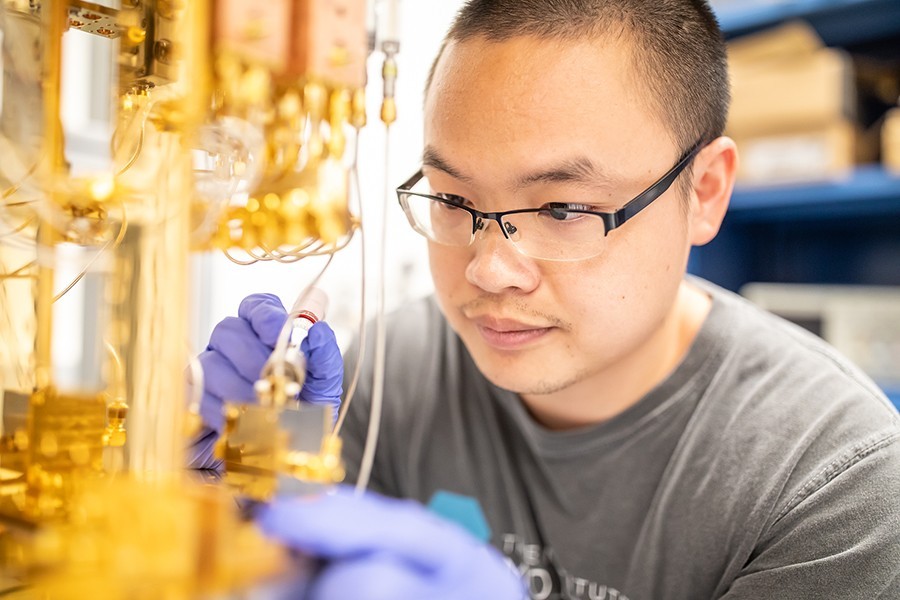
The Pritzker School of Molecular Engineering announces Quantum Science and Engineering PhD (11/30/2021)
The Pritzker School of Molecular Engineering announces Quantum Science and Engineering PhD. The program aims to ready the next generation of scientists and engineers who will lead advancements in this rapidly growing field. Quantum technology is poised to transform multiple industries. Facilitating those transformations requires a specialized workforce educated in aspects of applied physics. More information can be found at https://pme.uchicago.edu/academics/phd-program and https://pme.uchicago.edu/phd-program/molecular-engineering.
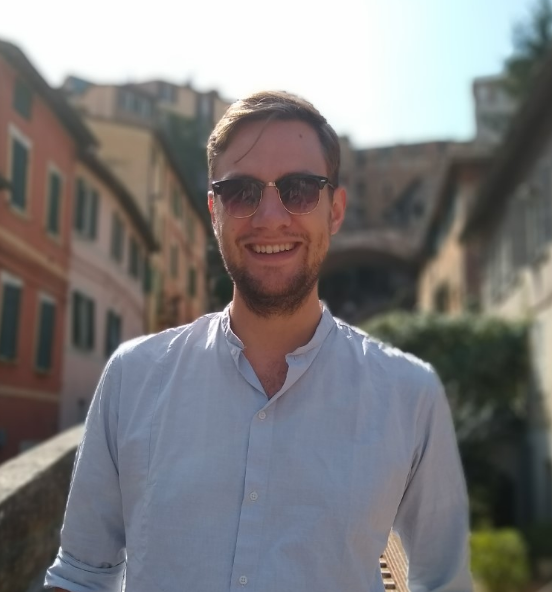
Christian Vorwerk awarded 2021 Carl-Ramsauer-Prize by the Berlin Physical Society (11/17/2021)
Christian Vorwerk has been awarded the 2021 Carl-Ramsauer-Prize by the Berlin Physical Society (PGzB). The award honors his outstanding PhD thesis at the Humboldt University Berlin, Germany. In his PhD thesis, Christian developed an all-electron approach for the consistent simulation of core and valence excitations in solids.
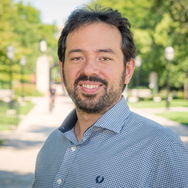
Marco Govoni promoted to Scientist at Argonne National Laboratory (11/10/2021)
Dr. Marco Govoni has just been promoted from Assistant Scientist to Scientist (tenured position) at Argonne National Laboratory. Marco serves as the co-PI of MICCoM, he is the lead developer of the WEST code, and he is the PI of a DOE Early Career Grant.
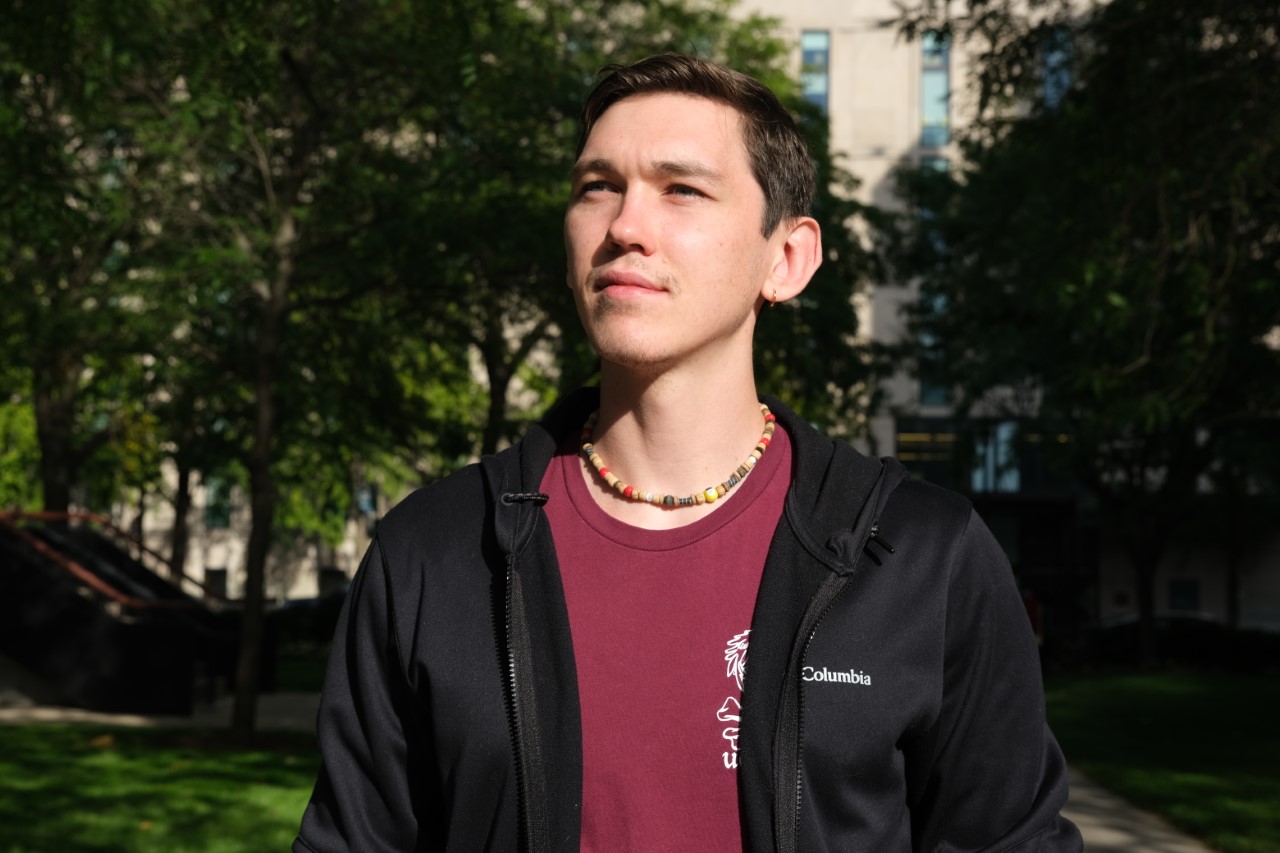
Photo Credit:
Aritrajit Gupta
Nikita Onizhuk named 2021 Google PhD Fellow in Quantum Computing (4/1/2021)
Google Research has named Nikita Onizhuk one of four Google PhD Fellows in the area of Quantum Computing. The Google PhD Fellowship Progran is the award by Google Research created to recognize outstanding graduate students doing exceptional and innovative research in computer science and related fields. Nikita is a 4th-year graduate student in the Chemistry department at the University of Chicago, and his primary research focuses on the spin dynamics of optically addressable spin defects in semiconductors. His research has been published in several high-impact journals, including Nature Materials, PRX Quantum, APL. Congratulations to Nikita, and wishing him all the best in his future research!
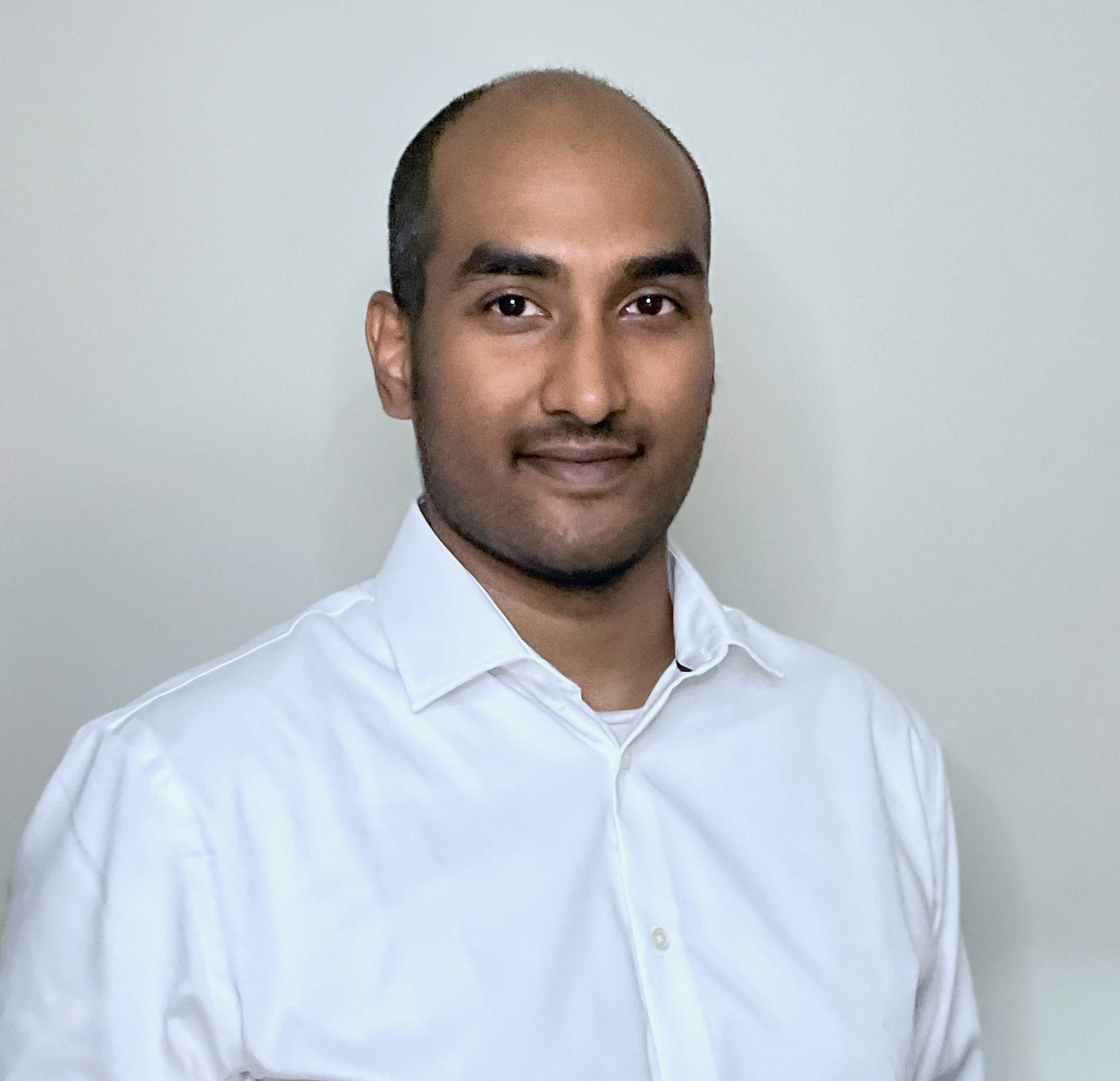
Siva Dasetty wins Best Poster Award at the PME 10-year anniversary event (09/18/2021)
Siva Dasetty has been awarded the best poster price in the category "Presentation Best Highlighting Collaboration Across Thematic Areas" at the PME 10-year anniversary event. His excellent poster presented the collaborative project on dielectric nanoparticle self-assembly pursued by the groups of Andrew Ferguson, Juan de Pablo, and Dmitri Talapin.

New MICCoM webmaster (7/8/2021)
Viktor Rozsa, who served as the webmaster for the MICCoM web page for the last three years, has moved to a new position. Christian Vorwerk, a postdoc in Giulia Galli's group, is taking over the position of the MICCoM webmaster.
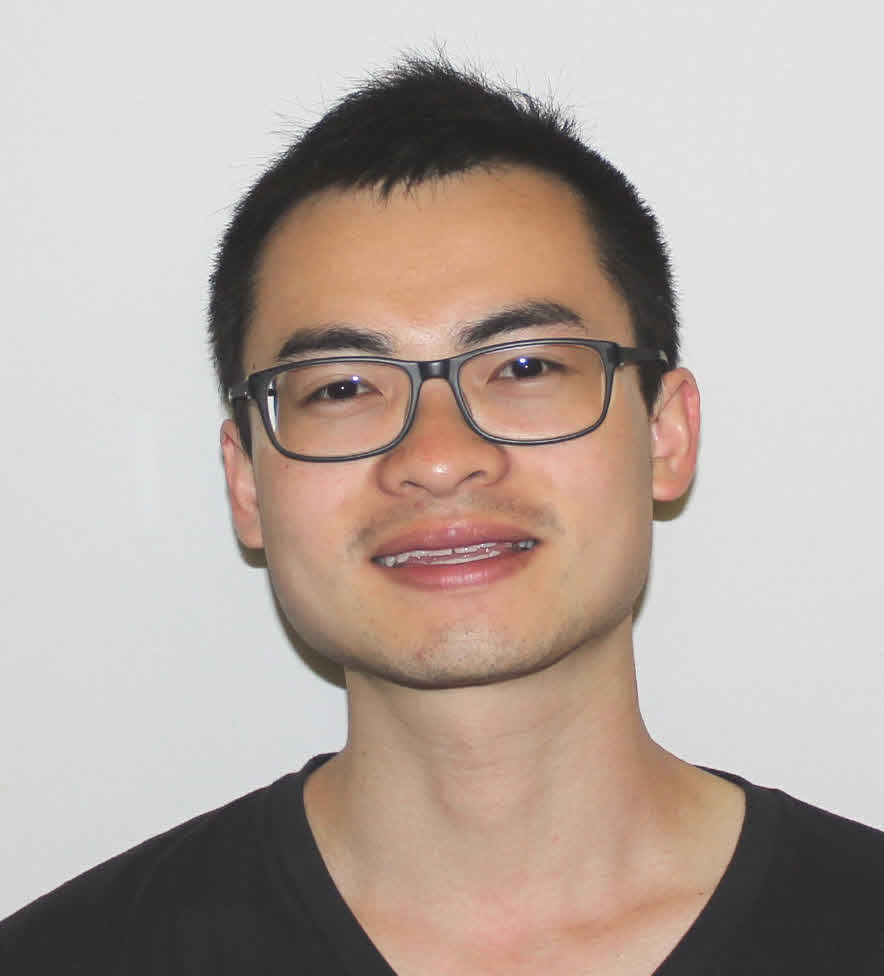
Graduate student Andrew Xu advances to PhD candidacy (6/11/2021)
Andrew Xu, a graduate student in the Galli group, has advanced to Ph.D. Candidacy at the University of Chicago. Andrew is part of the WEST development team and his work focuses on oxide materials. Congratulations!
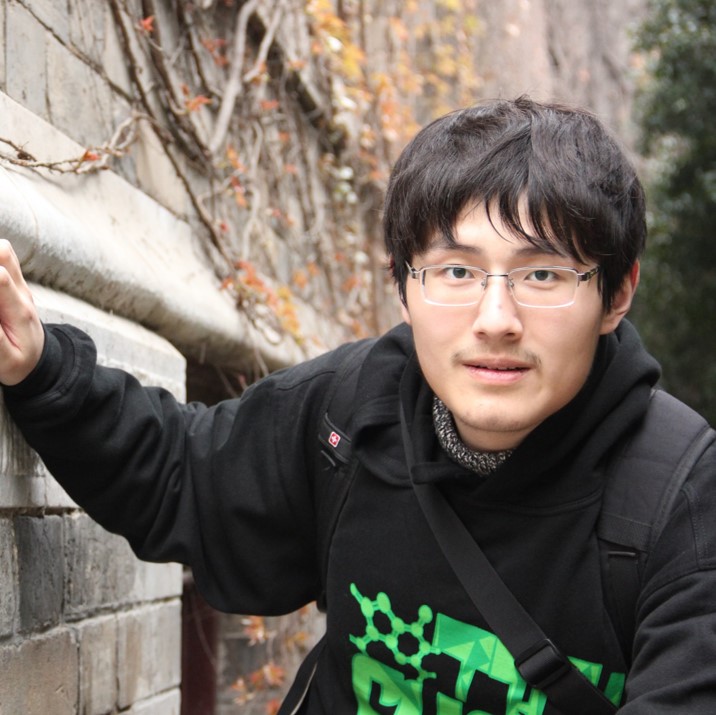
He (Ted) Ma wins UChicago Chemistry dissertation award (6/4/21)
MICCoM graduate student alumnus He (Ted) Ma has been awarded the 2021 Elizabeth R. Norton Prize for Excellence in Research in Chemistry, awarded by The University of Chicago Department of Chemistry. The award honors excellence in research, particularly He's dissertation, titled "Electronic Structure of Molecules and Materials from Quantum Simulations", which he defended in November, 2020. He's outstanding research contributed to the development of the WEST code, and his research on quantum embedding theory was recently featured by Argonne. He was also the main developer of two python packages for analysis of first principles simulations: PyCDFT and PyZFS. He has also played a key role in MICCoM validation efforts.
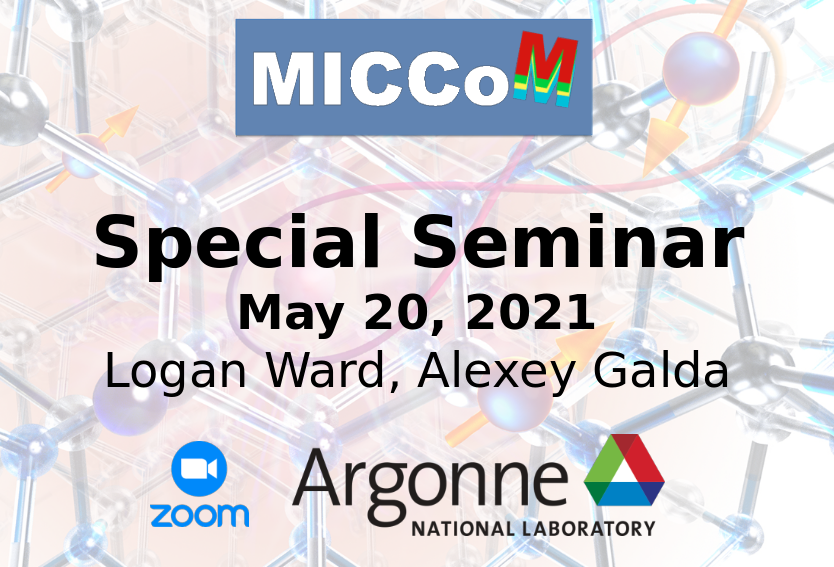
MICCoM Special Seminars: Dr. Logan Ward and Dr. Alexey Galda (5/20/2021)
Dr. Logan Ward, Assistant Computational Scientist at Argonne National Laboratory presented a talk titled "Integrating AI and Molecular Simulations," while Dr. Alexey Galda, Research Assistant Professor at James Franck Institute, University of Chicago, presented a talk titled "Pulse-level control of quantum computers for physics and materials science applications." The Special Seminars were free and open to the public.

MICCoM team attends GPU Hackathon at Argonne (4/27/21)
Several MICCoM researchers attended the Argonne GPU Hackathon, a multi-day event pairing domain scientists with experienced GPU mentors to help developers accelerate their own codes on graphics processing units (GPUs). Several MICCoM codes are currently being optimized for state of the art GPU architectures.
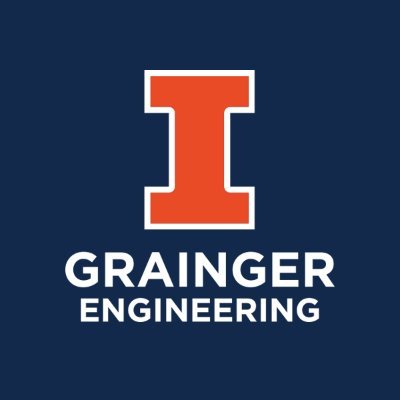
Giulia Galli delivers the Birnbaum lecture at the University of Illinois (4/26/21)
Giulia Galli delivered the Birnbaum Lecture at the Grainger College of Engineering at UIUC on Apr. 26, 2021. Her talk was titled "The many facets of light activated matter: From energy sustainability to quantum information" and explored the understanding of sustainable materials for solar energy and quantum information technologies.

UChicago launches quantum startup accelerator: Duality (4/7/21)
Duality is a new start-up incubator focused on leveraging the region’s quantum ecosystem to help startups bring innovations to marketplace. It is the first accelerator program in the nation that is exclusively dedicated to startup companies focused on quantum science and technology. Duality is led by the Polsky Center for Entrepreneurship and Innovation and the Chicago Quantum Exchange, and also reinforced by founding partners including the University of Illinois Urbana-Champaign, Argonne National Laboratory and P33. Duality's launch has been covered by The Chicago Tribune, The Washington Post, and Crain's Chicago Business.

Paper on aqueous interface validation protocol featured by Argonne (1/19/21)
The Physical Review Materials paper from the groups of MICCoM researchers Maria Chan, Paul Fenter, Francoi Gygi, and Giulia Galli, titled "Validating first-principles molecular dynamics calculations of oxide/water interfaces with x-ray reflectivity data ," introduces a robust protocol to validate first principles simulations of aqueous interfaces. Establishing validation protocols is a complicated task, and most existing protocols address bulk materials rather than interfaces. The described protocol compares high-resolution specular X-ray reflectivity measurements (performed at Argonne National Laboratory's Advanced Photon Source) to first principles calculations (performed at the Argonne Leadership Computing Facility) to validate simulations of the subtle interface between aluminum oxide and water.
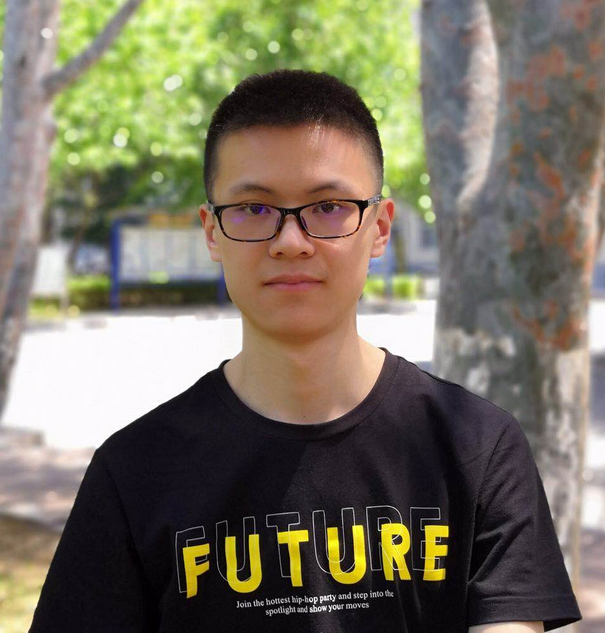
Galli Group graduate student advances to PhD candidacy (12/7/2020)
Graduate student Nan Sheng has advanced to Ph.D. Candidacy at University of Chicago. He is a member of Giulia Galli's group, and works in part on MICCoM code development. Congratulations!
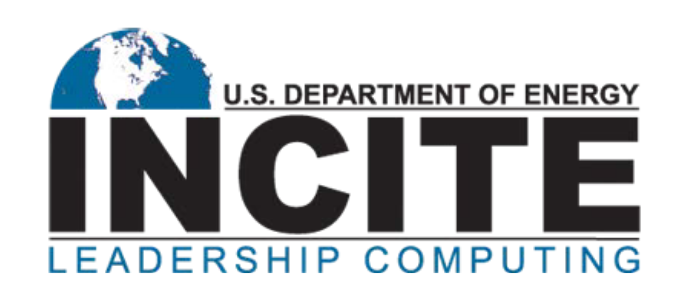
Incite Award for simulation of light activated matter awarded to Galli, Govoni and Gygi (11/16/20)
MICCoM investigators Giulia Galli, Marco Govoni, and Francois Gygi have been awarded 1,200,000 Theta node-hours to advance the design of novel materials for both solar cell devices and quantum platforms, including sensors. The award is through the U.S. Department of Energy’s (DOE) Office of Science Innovative and Novel Computational Impact on Theory and Experiment (INCITE) program, which has awarded allocations of supercomputer access to 51 high-impact computational science projects for 2021. The simulations of electronic excited state properties of heterogeneous materials—including defects and interfaces—couple first-principles molecular dynamics and electronic structure methods beyond density functional theory, as implemented in the Qbox and WEST codes open-source code.
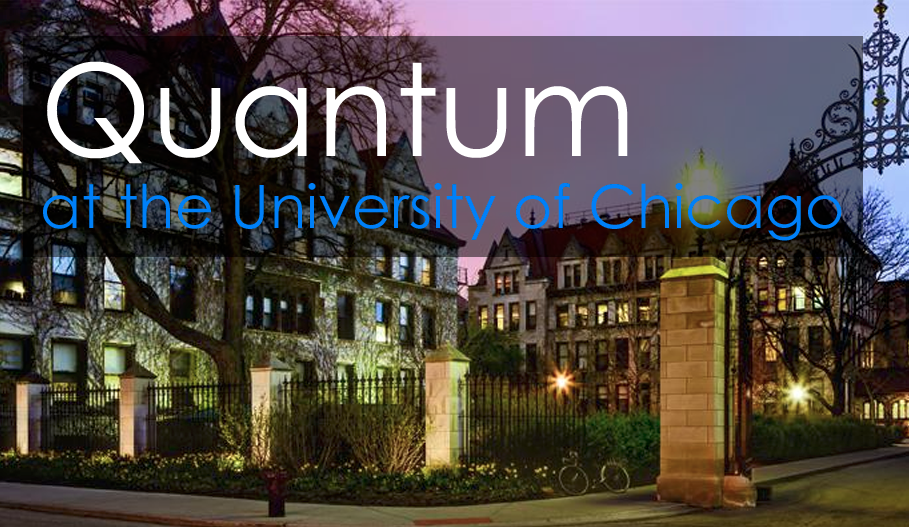
UChicago launches Quantum @ UChicago (11/12/20)
Several new consortiums and organizations have been recently launched at UChicago, including Chicago Quantum Exchange, Q-Next, EPiQC, QISpin, and SQMS. The University of Chicago is looking for highly motivated and driven graduate students to join in many teams across quantum applications of molecular engineering, of which MICCoM is a part. Quantum @ UChicago is targeting the development of practical quantum technologies that will have applications in computing, communication, and sensing. Broad faculty teams focus on solid-state, atomic, and photonic technologies, with approaches based on experiment and theory in strong collaborative efforts.

He (Ted) Ma defends PhD Dissertation (11/3/20)
MICCoM graduate student He (Ted) Ma successfully defended his PhD dissertation on 11/3/20. Ma's defense was titled "Electronic Structure of Molecules and Materials from Quantum Simulations." Ma has played a key role in development of the WEST code, and his research on quantum embedding theory has been featured by Argonne. Ma's work has also produced two python packages for analysis of first principles simulations: PyCDFT and PyZFS. He has also been integral to MICCoM validation efforts.
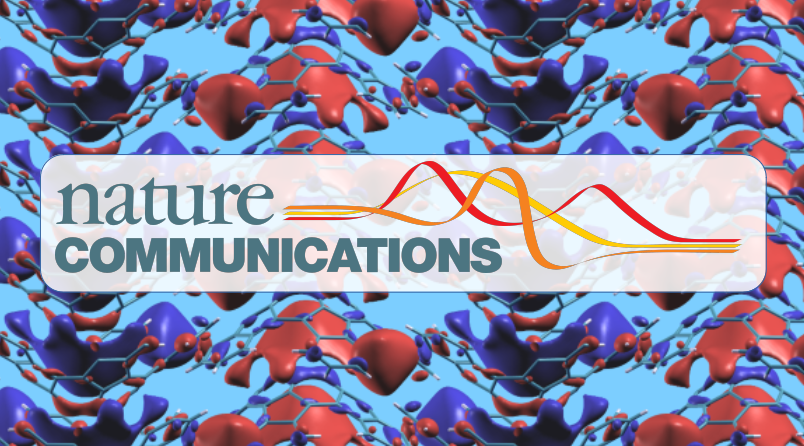
Articles highlighted by Nature Communications (9/25/20)
Two MICCoM articles have been featured as part of a themed collection on "Computation and Machine Learning for Chemistry" by the journal Nature Communications. The open-access collection is a showcase of exceptional recent content in the category of computational chemistry. The first highlighted article is titled "Dissociation of salts in water under pressure," which employed Qbox-SSAGES coupling and was featured by UChicago PME. The second article is titled "Electron affinity of liquid water," which employed the WEST code and was featured by UChicago News and Argonne National Laboratory.
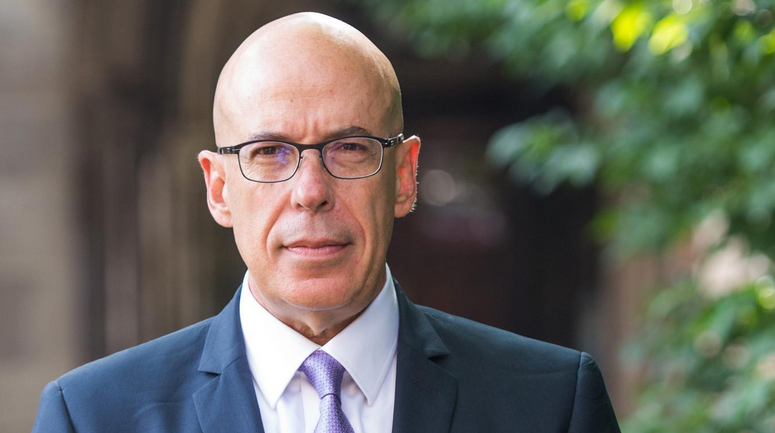
Juan de Pablo appointed VP for National Laboratories, Science Strategy, Innovation and Global Initiatives (9/24/2020)
MICCoM Deputy Director Juan de Pablo has been appointed Vice President for National Laboratories, Science Strategy, Innovation and Global Initiatives at the University of Chicago, effective immediately. In his new role will help drive and support the University’s science, technology and innovation efforts, along with their connection to policy and industry. He will help shape emerging strategic scientific and technological initiatives and also will provide oversight of entrepreneurship and innovation activities.

New MICCoM Postdoc Openings (9/17/20)
New postdoc positions are available through the Midwest Integrated Center for Computational Materials (MICCoM). Opportunities include development of machine learning for electronic structure application, experimental and theoretical methods for characterization of spin defects in optically active quantum systems, and code optimization for GPU architectures. More information and applications at: http://miccom-center.org/jobs

Berni Alder: 1925-2020 (9/9/20)
We are sad to share the news that Berni Alder passed away peacefully Monday evening Sep 7th. Berni’s role as a founding father of simulation and modelling cannot be over emphasised and we shall always be grateful for his scientific contributions and his passion for the field.
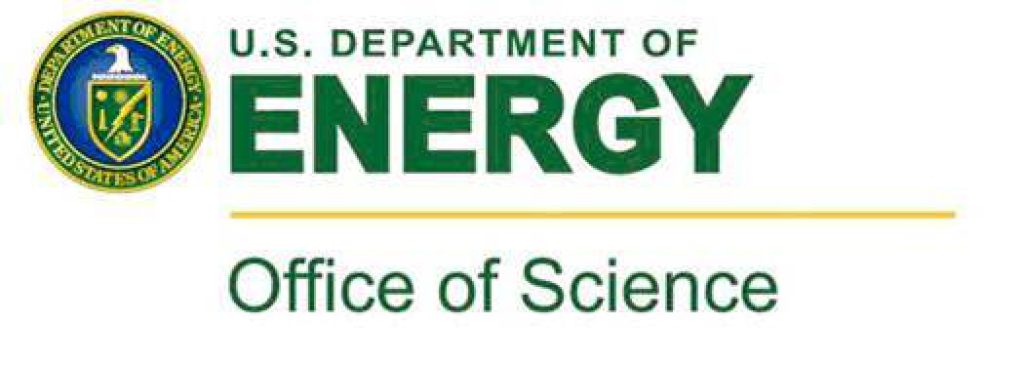
MICCoM Research Highlighted by DOE Office of Science (8/27/20)
The Department of Energy Office of Science has highlighted recent MICCoM research, published in Nature Communications, on "Dissociation of salts in water under pressure." The story appeared in UChicago News.
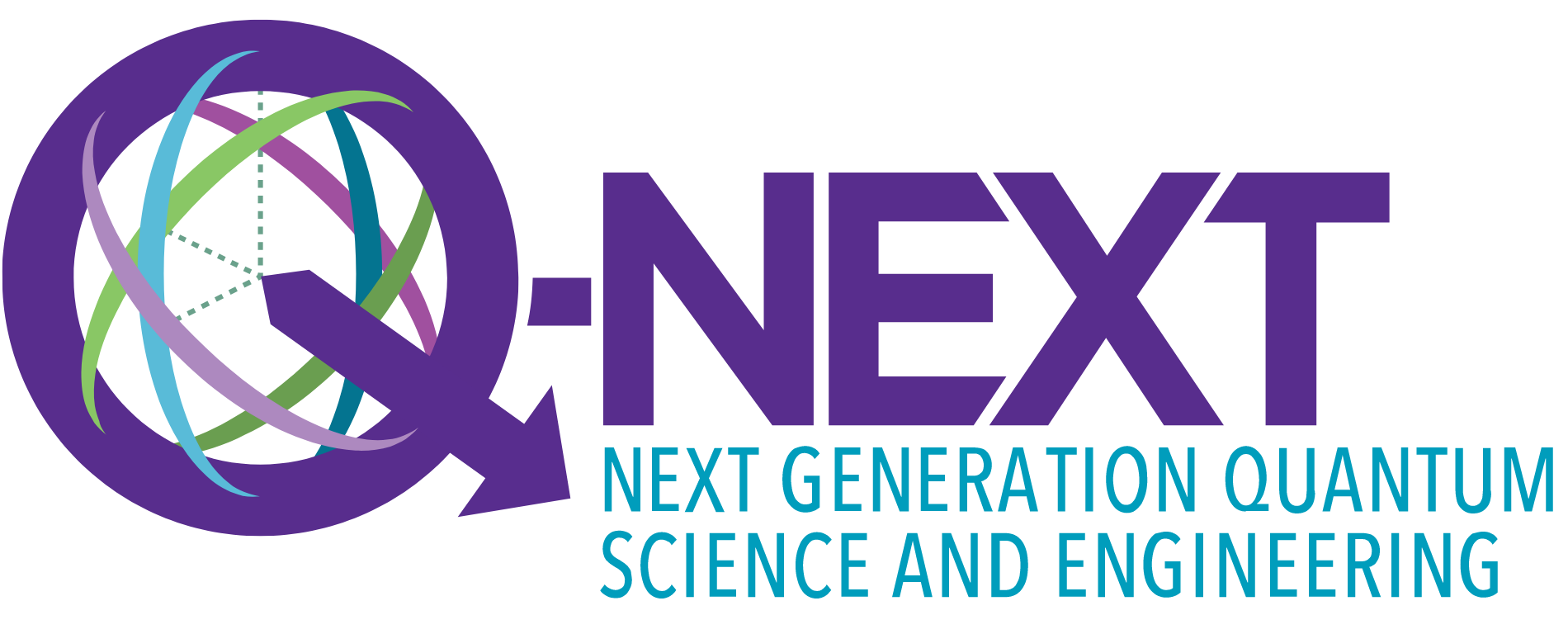
Department of Energy funds the quantum hub Q-NEXT at $115 million over the next five years (8/26/20)
The Q-NEXT mission is to deliver quantum interconnects and establish a national foundry to provide pristine materials for new quantum devices. With these capabilities, the center will demonstrate secure communication links, networks of sensors, and simulation and network testbeds. To achieve its mission, Q-NEXT’s strategy is to pursue three foundational thrusts (quantum foundries, extreme-scale characterization, and quantum simulation and sensing) with three science and technology thrusts (materials and integration, quantum sensing, and quantum communications). Led by the U.S. Department of Energy’s Argonne National Laboratory, Q-NEXT includes three national laboratories, ten universities and ten of the U.S.’s leading quantum technology companies.

Paper on quantum embedding theory featured by Argonne (7/28/20)
The NPJ Computational Materials paper from the groups of MICCoM researchers Giulia Galli and Marco Govoni, titled "Quantum Simulations of Materials on Near-term Quantum Computer," introduces a quantum embedding theory that permits the simulation of ‘spin defects’ in solids by coupling quantum and classical computing hardware. These types of defects in solids have applicability to the development of materials for quantum information processing and nanoscale sensing applications far beyond current capabilities. The theory was applied to spin-defects in diamond and silicon carbide on both classical computing architectures, as well as the IBM Q5 Yorktown quantum computer. The quantum embedding theory is implemented in MICCoM's WEST code.

Maria Chan awarded DOE Early Career Award (6/23/2020)
MICCoM PI Maria Chan has been awarded an Early Career award from the Department of Energy Basic Energy Sciences. Chans's awarded project is titled "Theory-informed Artificial Intelligence for Accelerating Materials Characterization," and aims to use a theory-informed artificial intelligence and machine learning framework to determine atomic positions in real-time from experimental characterization data. The project will be implemented in a user-friendly framework titled FANTASTX (Fully Automated Nanoscale To Atomistic Structure from Theory and eXperiment) will in turn enable and accelerate nanoscale materials understanding and design. Congratulations!

Marco Govoni awarded DOE Early Career Award (6/23/2020)
MICCoM PI Marco Govoni has been awarded an Early Career award from the Department of Energy Basic Energy Sciences Theoretical Condensed Matter Physics program. Govoni's awarded project is titled "Optical Control of Spin-polarization in Quantum Materials," and aims to enable the development of robust solid-state qubits as building blocks for applications in quantum sensing, quantum communication, and quantum computing. The project will use MICCoM's WEST code, of which Govoni is the leader, as well as a hierarchical modeling approach that harnesses artificial intelligence and quantum computing. Congratulations!
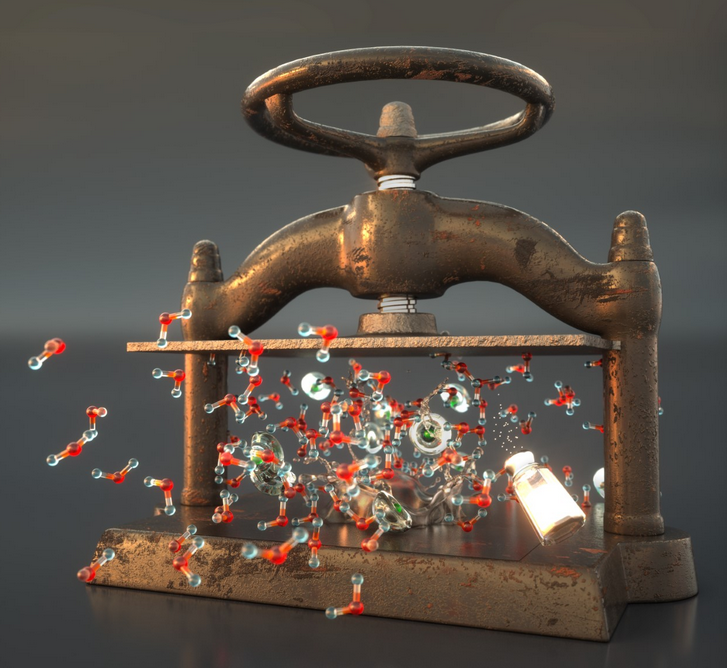
Paper featuring Qbox-SSAGES coupling appears in Nature Communications (6/16/2020)
The paper from the groups of MICCoM researchers Giulia Galli, Francois Gygi, and Juan de Pablo, is titled "Dissociation of salts in water under pressure," and is published in Nature Communications. It was also featured by UChicago PME. The study employed newly developed coupling of Qbox and SSAGES to study the dissociation of NaCl in water at extreme conditions. The study identified two critical metastable states of the salt, and described their modification in the regime of water molecular dissociation, which can only be described properly by first-principles simulations.

Educational opportunity: summer workshop on Containers on HPC clusters (July 2020)
Marco Govoni is participating in a 1-day workshop that aims at showcasing the landscape of container technologies and the concepts related to them targeting massively parallel calculations. Containers offer a way to package software applications and workflows to make them reproducible, shareable, and portable. The focus of this workshop, organized by UChicago’s Research Computing Center, is to facilitate the use of containers on HPC resources, providing examples of creating containerized MICCoM applications and using the singularity runtime to run native singularity images and make compatible the use of Docker containers.

UChicago PME honors class of 2020 (6/13/2020)
Two MICCoM graduate students in the Pritzker School of Molecular Engineering (PME), were conferred doctoral degrees at UChicago's 533rd Convocation Ceremony. Dr. Ashley Guo and Dr. Jiyuan Li were both members of Juan de Pablo's research group. Guo's dissertation was titled Molecular Simulation of Biological Macromolecules: Aggregation, Ion Capture, and Sliding Dynamics. She worked on development of SSAGES and enhanced sampling methods within MICCoM, and is now a postdoctoral scholar at the Center for Soft Matter Research at New York University. Li's dissertation was titled Electrostatics and Hydrodynamics in Continuum-Scale Simulations: Numerical Approaches. He worked on SSAGES and COPSS within MICCoM, and is now a data scientist at Uber. Congratulations!
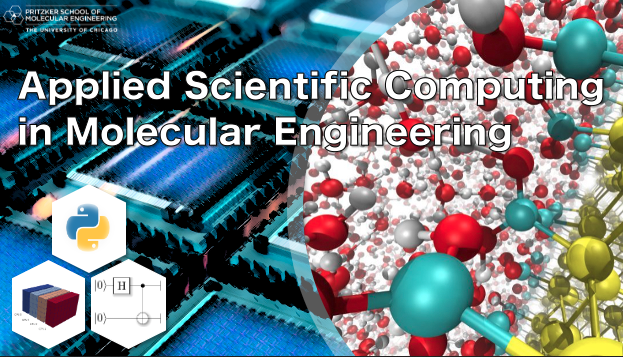
New class at UChicago offers training on applied scientific computing (Spring 2020)
The class “Applied Scientific Computing in Molecular Engineering” taught by Marco Govoni at the University of Chicago aims at developing the next generation of computational scientists. This course provides hands-on practical training in scientific computing with a focus on applications to molecular engineering. The course provides: (i) training in core programming concepts and basics of good software development practices, (ii) advanced programming topics in CPU and GPU parallel programming and quantum computing, exploring their use through practical examples.

PyZFS and PyCDFT Python packages released (5/2020)
MICCoM has released two python packages for analysis of first principles simulations: PyCDFT (code repository), and PyZFS (code repository). PyCDFT computes diabatic states using constrained density functional theory, while PyZFS is used for the calculation of the zero-field splitting tensor, D, of molecules and solids. Both packages emphasize modular and object oriented design, and are compatible with various plane-wave DFT codes, including Qbox.
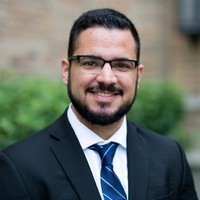
Pedro Amorim wins graduate TA award (5/11/2020)
Pedro Amorim, a second year graduate student in Jonathan Whitmer's group, has been awarded a Outstanding Graduate Student Teaching Award by the University of Notre Dame. Presented annually, the award recognizes exceptional teaching in the classroom or in a teaching laboratory. Amorim is working on nonequilibrium sampling projects for the SSAGES code.
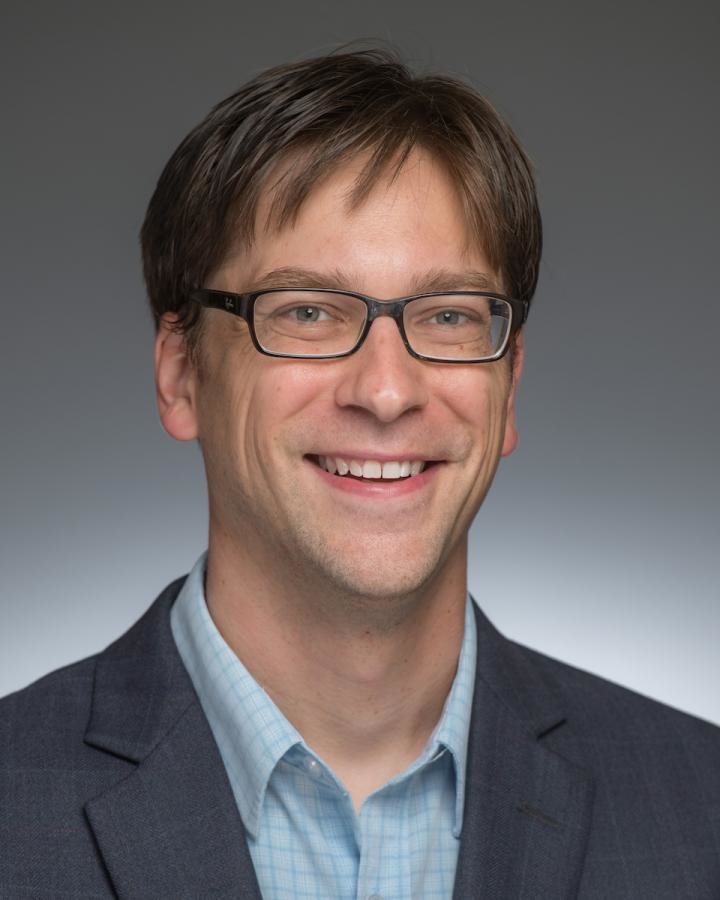
Jonathan Whitmer awarded tenure (5/4/2020)
Jonathan Whitmer has been promoted to Associate Professor with tenure in the University of Notre Dame's Department of Chemical and Biomolecular Engineering, where he researches thermodynamics and statistical mechanics in soft materials. His group studies liquid crystals, polymer and polyelectrolyte phases, self-assembly, classical thermodynamics, and free energy methods. In MICCoM, Whitmer is the leader of SSAGES, which is a comprehensive suite of advanced methods for phase space sampling in quantum and classical molecular simulations.
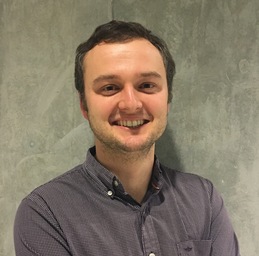
Nicholas Jackson joins faculty of UIUC (4/30/2020)
MICCoM postdoc Nicholas Jackson has been appointed assistant professor in the Department of Chemistry at UIUC in Urbana, IL. His research focuses on computational soft materials, integrating molecular quantum mechanics, computational statistical mechanics, and machine learning to characterize the multiscale structure and function of soft materials with useful optoelectronic, bioelectronic, and sustainability applications. In MICCoM, Jackson has been working on machine learning for coarse-grained electronic structure as well as multiscale soft materials design. Jackson's professorship will begin in spring, 2021.
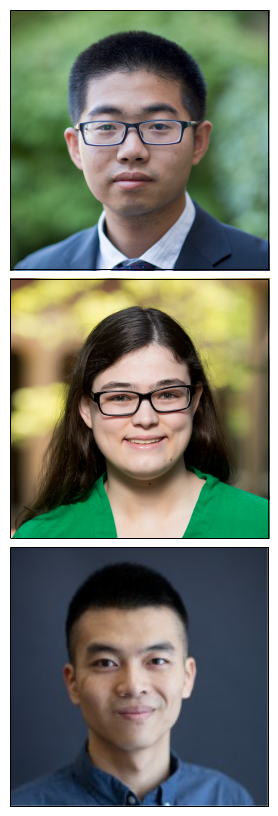
Whitmer Group graduate students advance to PhD Candidacy (4/2020)
Graduate student Jiale Shi, a third year student in Chemical and Biomolecular Engineering at the University of Notre Dame, has passed PhD candidacy. Shi works on simulation of material properties in liquid crystals and solids using advanced sampling, as well as ab initio thermodynamics using the coupling of SSAGES and QBox. Graduate students Anne Leonhard and Shanghui Huang have also passed PhD candidacy in the departments of Chemical and Biomolecular Engineering and Chemistry. Both Leonhard and Huang work on development and application of the SSAGES code. Congratulations!
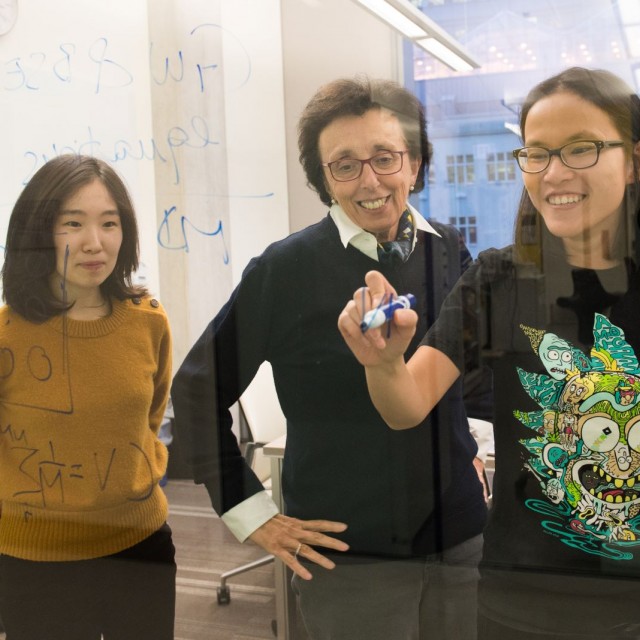
Giulia Galli elected to AAAS and NAS (4/30/2020)
This month, MICCoM director Giulia Galli was elected to both the American Academy of Arts and Sciences (AAAS) and the National Academy of Sciences (NAS). Her research uses MICCoM-supported codes to understand, predict, and engineer material properties from first principles. “Giulia’s groundbreaking work in computational modelling of molecular behavior can help us address complex and pressing problems in areas such as renewable energy technology and quantum device engineering,” said Matthew Tirrell, dean of the Pritzker School of Molecular Engineering (PME).
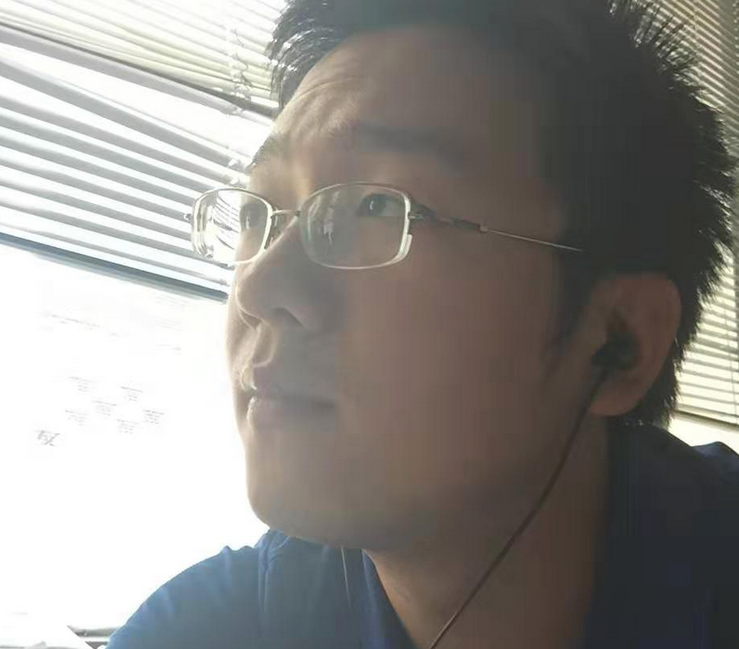
Lan Huang joins MICCoM as postdoc (4/15/2020)
MICCoM welcomes new postdoc Dr. Lan Huang! Huang joins MICCoM from the Department of Materials Science and Engineering at Texas A&M University. Huang is appointed at Argonne National Laboratory, where he will work various MICCoM software development projects.
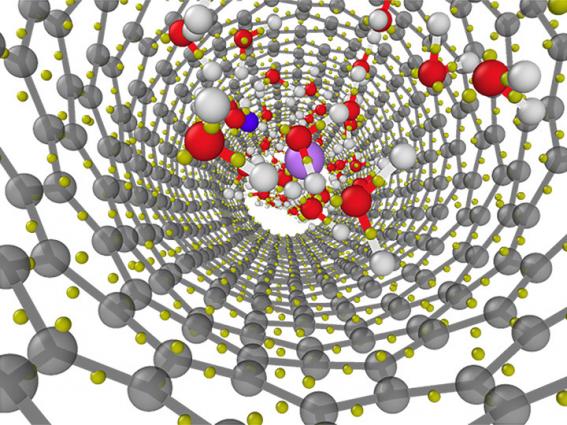
Research on Nanoconfinement of Salty Water Highlighted in Scilight (3/25/2020)
The paper from the group of MICCoM researcher Giulia Galli, titled Molecular Polarizabilities as Fingerprints of Perturbations to Water By Ions and Confinement, has been published in the Journal of Chemical Physics. The work was featured by the journal and highlighted in AIP Scilight. It was also featured by Lawrence Livermore National Laboratory. The work was funded by the AMEWS Center, and uses MICCoM code Qbox.
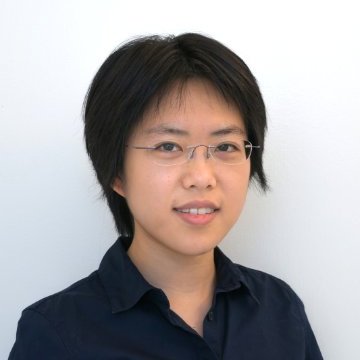
Sijia Dong joins faculty of Northeastern University (3/25/2020)
MICCoM postdoc Sijia Dong has been appointed assistant professor in the Department of Chemistry and Chemical Biology at Northeastern University in Boston, MA. Her research focuses on first-principles-based and data-driven computational methods for complex molecular systems and materials. In MICCoM she has been working on machine learning techniques applied to electronic structure problems, for example the calculation of absorption spectra. Dong's professorship will begin in January, 2021.
March Training Event Canceled (3/2020)
Due to uncertainties and health concerns caused by the rapidly evolving COVID-19 situation, we are canceling the training event of MICCoM codes originally planned to be held at Argonne on March 30-31, 2020. We will be in touch with all participants in order to reschedule it online.

Nick Jackson receives multiple awards (2/2020)
Nick Jackson, a Maria Goeppert Mayer Fellow at Argonne National Laboratory and visiting scientist in the group of Juan de Pablo, has been selected for multiple recent awards. They include the 2019 Maria Lastra Mentoring Award, 2019 MRS Postdoctoral Award, and the 2019 ACS PHYS Young Investigator Award. His current research concerns the development and application of computational algorithms for the multiscale design of soft materials.
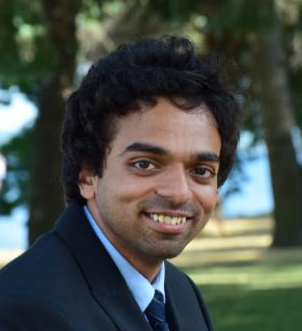
Johnson Dhanasekaran joins MICCoM as postdoc (2/10/2020)
MICCoM welcomes new postdoc Dr. Johnson Dhanasekaran! Dhanasekaran joins MICCoM from the Department of Mechanical and Aerospace Engineering at Cornell University, where he worked with Prof. Donald Koch. His dissertation was titled "Cloud packet model for drop-size evolution: Turbulence, gravity, non-continuum hydrodynamics, and Inertial-clustering." Dhanasekaran will work on the COPSS code.
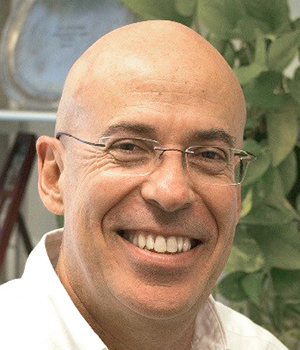
Juan de Pablo delivers numerous named lectures (2/2020)
Prof. Juan de Pablo has been selected for multiple recent awards and named lectureships. They include the Caltech Lacey Lectures (2020), Purdue Kelly Lecture (2020), Ohio State Lowrie Lectures (2020), Northwestern MAH Lectures (2019), NJIT Named Tomasino Award Lecture (2019), University of Nebraska-Lincoln NC3 Lecture (2019), University of Minnesota Neil Amundson Lecture (2019), and Arizona State Distinguished Lecturer (2019).

He Ma selected for an internship at Google (2/2020)
He Ma has been selected to be a Spring 2020 Research Intern at Google, where he will work on applying machine learning techniques to develop Density Functional Theory. He is a member of Giulia Galli's group, and works on MICCoM code development.
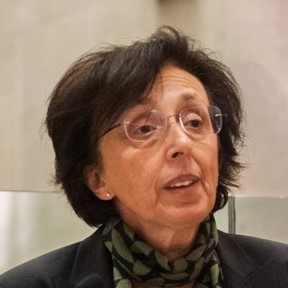
Giulia Galli delivers the Etter Memorial Lecture at the University of Minnesota (2/4/2020)
Giulia Galli delivered the Etter Memorial Lecture in Materials Chemistry at the University of Minnesota on Feb 4, 2020. Her talk was titled "Light-activated matter: from energy to quantum information science."
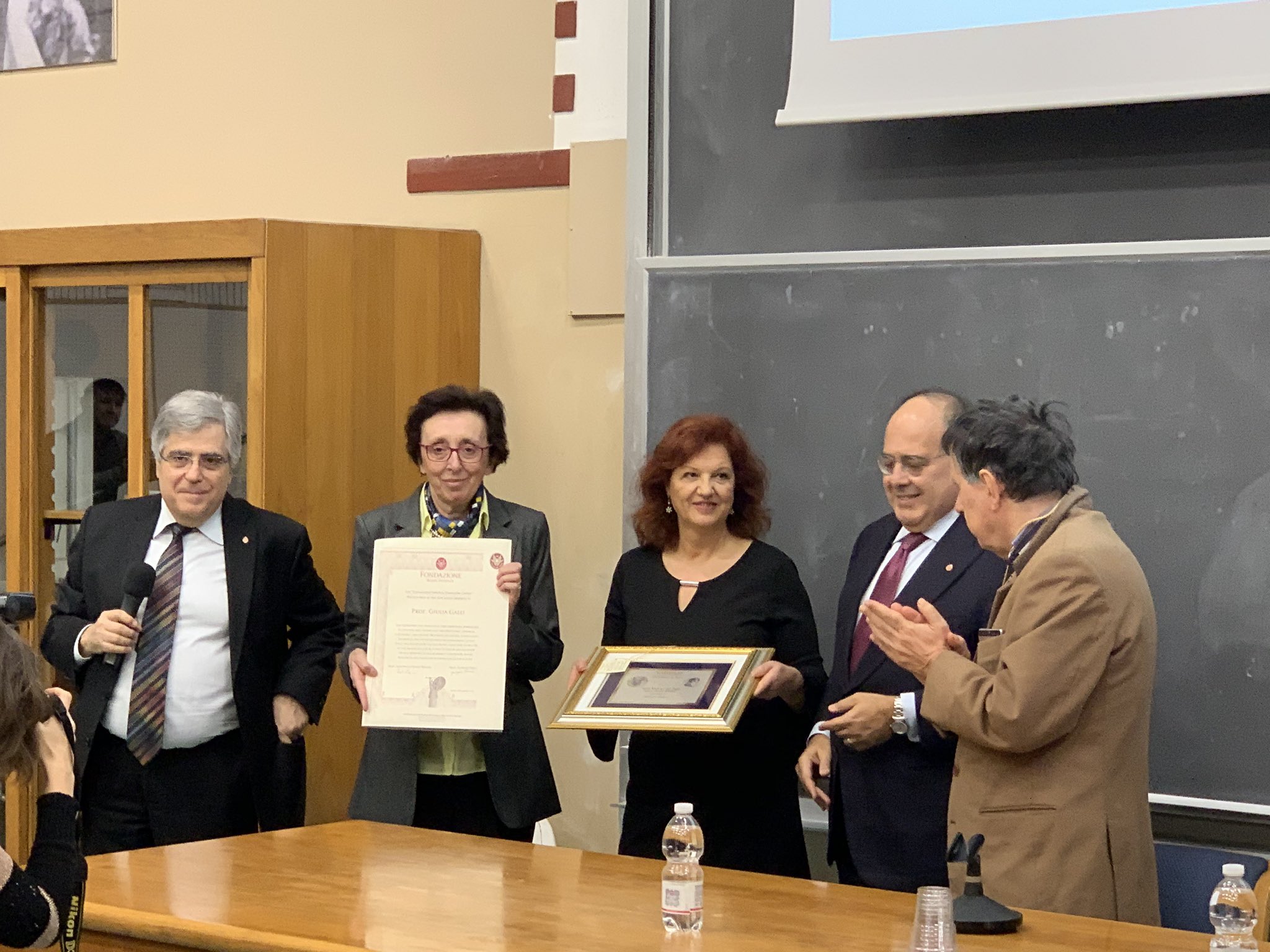
Giulia Galli awarded the Tommasoni-Chisesi prize (1/31/2020)
Giulia Galli has been awarded the Tommasoni-Chisesi prize by the University of Rome, La Sapienza, during a ceremony in Rome on January 31, 2020. The Tomassoni-Chisesi prize is an international prize intended to recognize outstanding achievements in physics.

Juan de Pablo selected for W. N. Lacey Lectureship in Chemical Engineering at Caltech (1/30/2020)
Juan de Pablo was selected for the 2020 W. N. Lacey Lectureship at Caltech. He discussed the relationship between structure, activity, and motion in lyotropic liquid crystalline polymeric systems. His talks were titled "Soft matter design and characterization in the era of machine learning," and "Liquid Crystals - From Simple Self-Assembled Constructs, to Autonomous Materials."
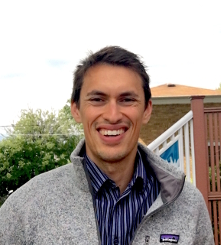
Michael Webb joins faculty of Princeton (1/22/2020)
MICCoM postdoc Michael Webb has been appointed assistant professor in the Department of Chemical and Biological Engineering at Princeton University in Princeton, NJ. His research focuses on computational study of novel soft materials for health and sustainability applications, with emphasis on predictive modeling frameworks to study aspects of charge-transport phenomena in polymeric media, stimuli-responsive behavior of biopolymer-based solutions/gels, and the interfacial physics/properties of polymer-composite materials. In MICCoM, Webb has been working on graph-based approaches for molecular coarse-graining as well as machine learning for soft materials applications. Webb's professorship will begin in spring, 2020.
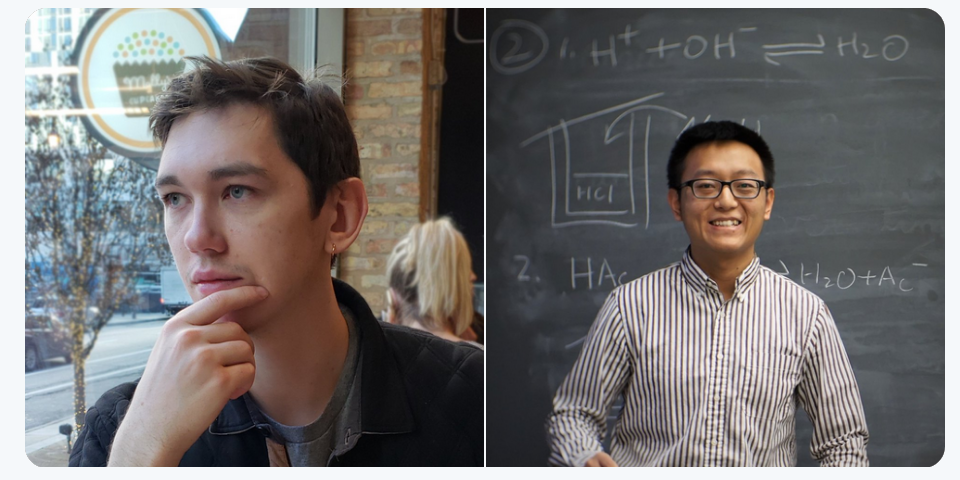
Galli Group graduate students advance to PhD candidacy (11/6/2019)
Graduate students Mykyta Onizhuk and Yu Jin have advanced to PhD candidacy in the Department of Chemistry at University of Chicago. They are both in Giulia Galli's group, and work in part on MICCoM code development. Congratulations!
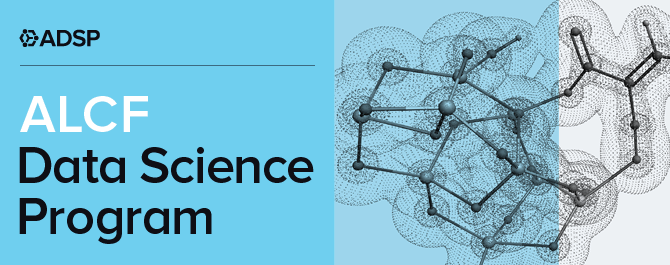
Project on AI-informed Computation selected for ALCF Data Science Program (11/5/2019)
The project, “Advanced Materials Characterization with AI-informed Computation,” led by MICCoM PI Marco Govoni has been selected for the 2019-2020 Argonne Leadership Computing Facility Data Science Program (ADSP) at Argonne National Laboratory. ADSP connects leading researchers with ALCF scientists to push the state-of-the-art in machine learning, workflows, data analysis, and algorithmic development. The awarded project will aim to develop an AI-informed computational framework around the WEST and Qbox codes that integrates machine learning into existing workflows, thereby enabling the prediction of spectroscopic signatures of materials with fast turnaround.

MICCoM holds All-Hands meeting (11/4/2019)
MICCoM held an All-Hands meeting at Argonne National Laboratory on Nov. 4, 2019. All MICCoM PIs and participants met to discuss current work and future directions of the center. Presentations included talks on MICCoM software developments as well as applications of codes.

Paper on first-principles simulations of water featured as J. Chem. Phys. Editor's Pick (10/22/19)
The Journal of Chemical Physics paper from the group of MICCoM researcher Francois Gygi, titled "Ensemble first-principles molecular dynamics simulations of water using the SCAN meta-GGA density functional," uses the SCAN density functional to study structural and electronic properties of water with robust statistics. The simulations include Raman and IR spectroscopy, showing consistently improved correspondance with experimental data at moderate computational cost. All simulation data generated in the study is available at http://www.quantum-simulation.org/reference/h2o/scan330/index.htm. The newly-implemented SCAN density functional is available in the newest version of the Qbox code.
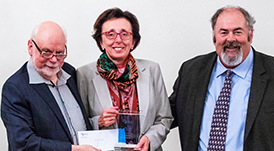
Giulia Galli wins 2019 Feynman Theory Prize (10/22/19)
Giulia Galli has been awarded the 2019 Feynman Theory Prize from the Foresight Institute, a think tank focused on molecular manufacturing. Every year, the Foresight Institute honors two researchers that make groundbreaking strides in nanotechnological development. She was recognized for significant contributions to the development of theoretical methods to simulate nanomaterials at the atomic level, with a focus on semiconductor nanoparticles and carbon-based systems. Galli received her award from Sir James Fraser Stoddart, 2016 Nobel Laureate in Chemistry, and Steve Burgess, president of the Foresight Institute, at an event in Evanston, IL., on September 30.

Open Positions: Postdoctoral Researcher and Software Scientist (2) (10/8/19)
There are several open positions at MICCoM. We are looking for a postdoctoral candidate to perform research related to the development and experimental validation of computational models exploring new spin defects physics in optically active quantum systems. We are also hiring two software scientists for development and deployment of MICCoM codes and analysis codes for advanced sampling, molecular dynamics and electronic structure calculations. For more information, see our page on job opportunities.

UChicago News Story: How AI could change science, featuring Andrew Ferguson (10/1/19)
AI technology is increasingly being used for everything from scanning the skies for supernovae to finding new drugs from millions of potential combinations and developing a deeper understanding of the complex phenomena underlying the Earth’s climate. In this story, Prof. Andrew Ferguson asks how using physical laws as inputs to artificial intelligence algorithms could accelerate discovery of new materials. Ferguson is also involved in the new UChicago Center for Data and Computing.
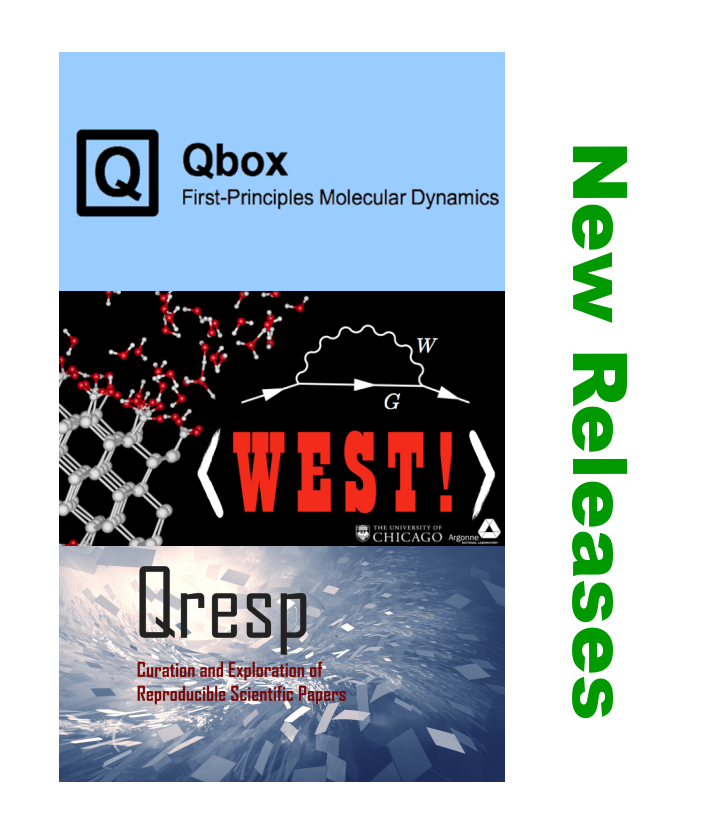
New releases of Qbox, WEST and Qresp (9/30/19)
Qbox 1.68.0 (http://qboxcode.org) includes the SCAN meta-GGA density
functional.
WEST v4.0.0 (http://www.west-code.org/) has the following new features:
- Added client/server mode
- Added coupling to Qbox code (http://qboxcode.org)
- Added python3 interface
- Simplified the input format (now accepting both JSON and YAML formats)
- Expanded documentation
Qresp v1.2.0 (http://qresp.org/) has the following new features:
- Updated Curator UI
- Added Preview Functionality
- Added Share Functionality
- Changed configuration scheme
- Added sections into Qresp explorer
- Removed ssh connection and added Zenodo & HTTP connections
- New unit tests
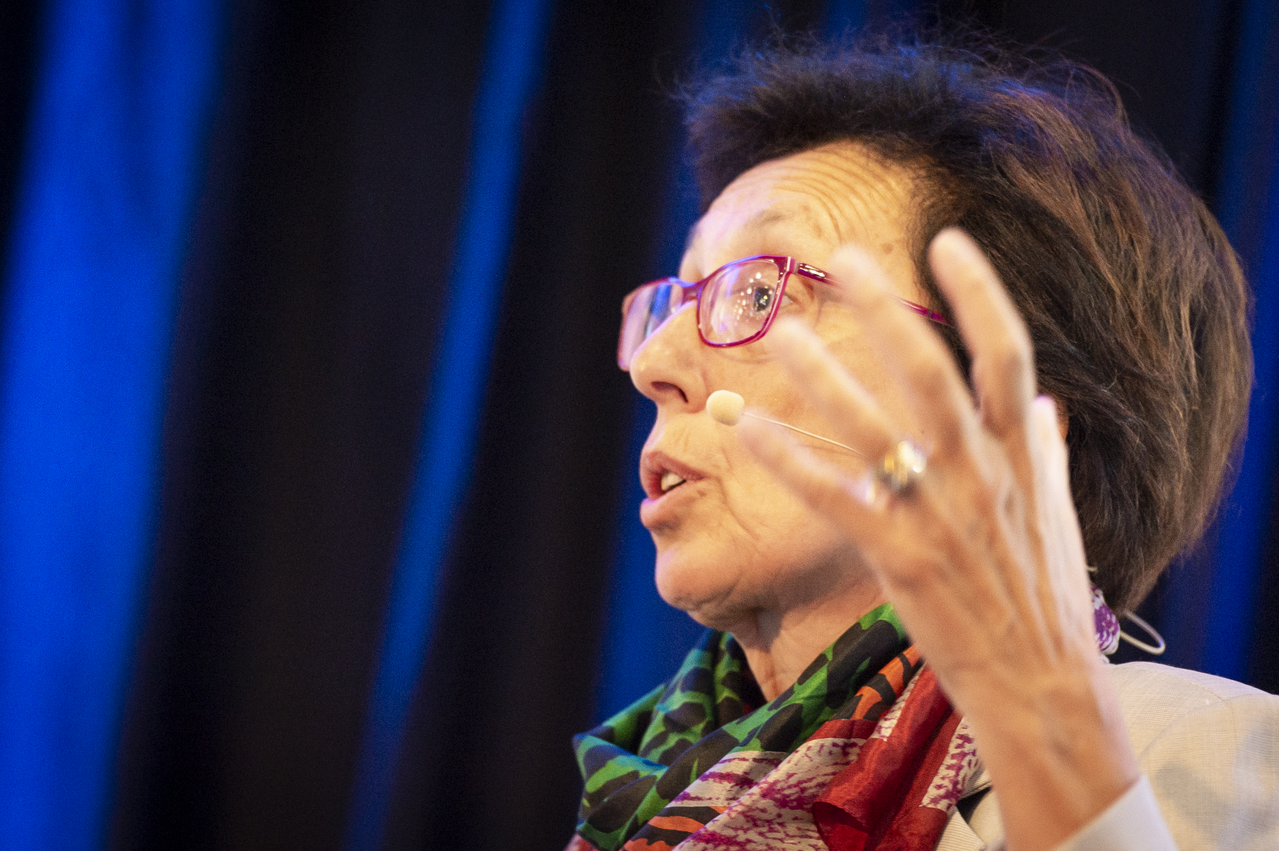
Giulia Galli delivers plenary lecture at CECAM 50th anniversary (9/10/19)
Galli delivered the plenary lecture at the conference “Molecular and materials simulation at the turn of the decade: Celebrating 50 years of CECAM” in Lausanne, Switzerland. CECAM (Centre Européen de Calcul Atomique et Moléculaire) is the longest standing European Institute for the promotion of fundamental research on advanced computational methods and their application to science and technology. Galli's lecture was titled "Light-activated matter: from photo-electrochemical cells to optogenetics and quantum information systems." A video of the lecture is available here.

Paper on living liquid crystals featured by UChicago News (8/26/19)
The Physical Review X paper from the group of MICCoM researcher Juan de Pablo, titled "Emergence of Radial Tree of Bend Stripes in Active Nematics," uses experiments and hydrodynamic simulations to study the emergence of bend stripes, which arise as spontaneous undulations of the director field in circularly aligned lyotropic liquid crystals doped with bacteria. These liquid crystals may find application in a variety of display technologies. The hydrodynamic simulations of liquid crystals were conducted with MICCoM software COPPS.
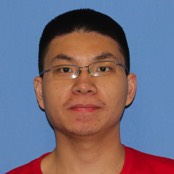
Wei Chen awarded Kuck Computational Science & Engineering Scholarship (7/2019)
Wei Chen has been awarded the Kuck Computational Science & Engineering Scholarship at UIUC. The Kuck Scholarship is highly selective, supporting graduate students with research in hardware, software, architecture, or applications within the field of computational science and engineering. Wei Chen is a graduate student in Andrew Ferguson's group.
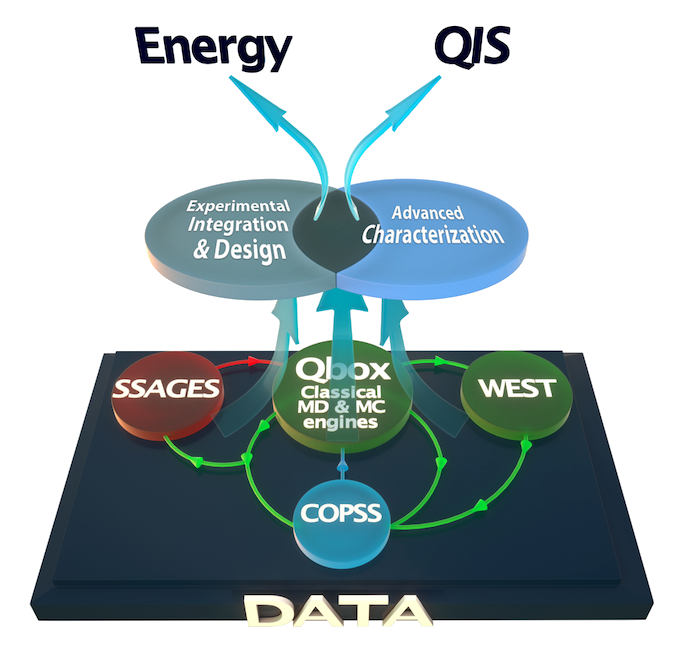
Department of Energy announces renewal of MICCoM (6/13/19)
The US Department of Energy has announced a $32 million investment to accelerate the design of new materials through use of supercomputers. The funding supports the renewal of the Midwest Integrated Center for Computational Materials (MICCoM) as well as six other projects at national laboratories and universities. These projects will develop widely applicable open source software utilizing DOE’s current leadership class and future exascale computing facilities. Projects will provide software platforms and data for the design of new functional materials with a broad range of applications, including alternative and renewable energy, electronics, data storage and materials for quantum information science. The archived site from MICCoM's first four years may be found at: http://miccom-center.org/1
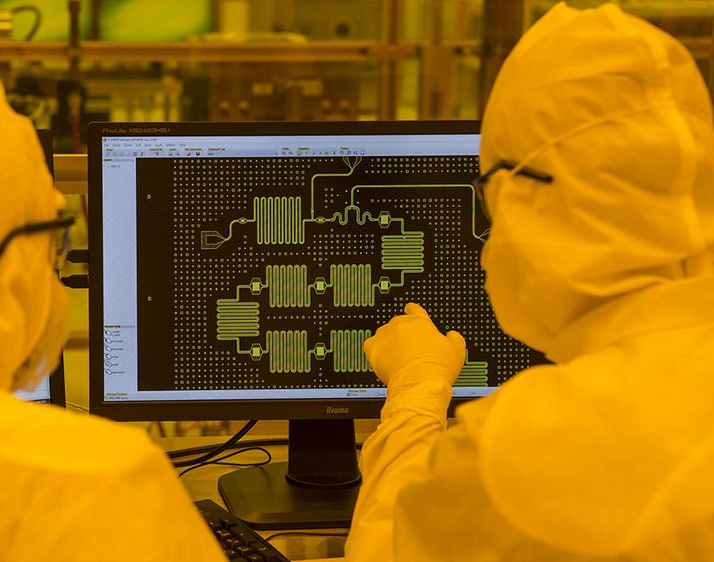
$100 million commitment launches Pritzker School of Molecular Engineering (5/28/19)
The University of Chicago announced a $100 million commitment from the Pritzker Foundation to support the new Pritzker School of Molecular Engineering, becoming the first university in the United States with a school dedicated to this emerging field. The new school builds on the success of efforts by the University and Argonne National Laboratory, which partnered in 2011 to establish the Institute for Molecular Engineering. MICCoM will work closely with the new school on research collaborations.
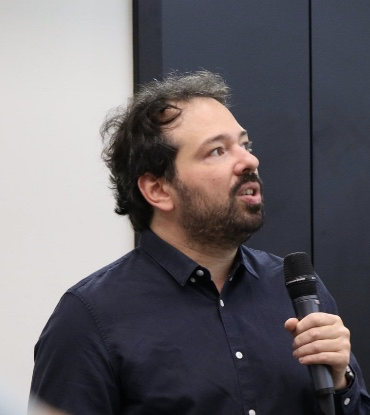
Marco Govoni delivers keynote at EPFL addressing the reproducibility crisis in science (5/22/19)
Dr. Govoni presented the highlight talk entitled “Qresp, a tool for curating, discovering and exploring reproducible scientific papers” at the Swiss Federal Institute of Technology Lausanne (EPFL). The keynote focused on outstanding problems (and proposed solutions) in sharing reproducible workflows in computational materials science. Qresp has previously been featured by UChicago News.

Giulia Galli delivers Nelson W. Taylor Award talk at Penn State (4/11/19)
Prof. Galli gave the keynote address of the 2019 Nelson W. Taylor Lectureship in Materials Science and Engineering at Penn State University. Her talk was titled “Asking ‘why’ matters to predict the future,” and focused on insights and first principles predictions of material properties relevant to energy conversion processes and quantum information technologies.
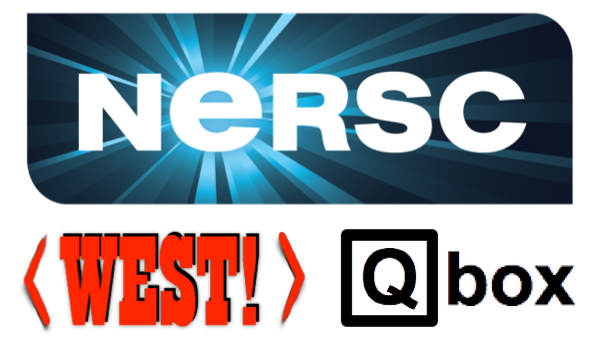
MICCoM teams awarded early access to NERSC Perlmutter supercomputer (3/27/19)
The National Energy Research Scientific Computing (NERSC) center has awarded MICCoM codes WEST (Tier 1; PI: M. Govoni) and Qbox (Tier 2; PI: F. Gygi) early access and resources on the next-generation Perlmutter Architecture through the NERSC Exascale Science Application Program (NESAP). The new Perlmutter system will be built for NERSC at Lawrence Berkeley National Laboratory, and delivered in late 2020.
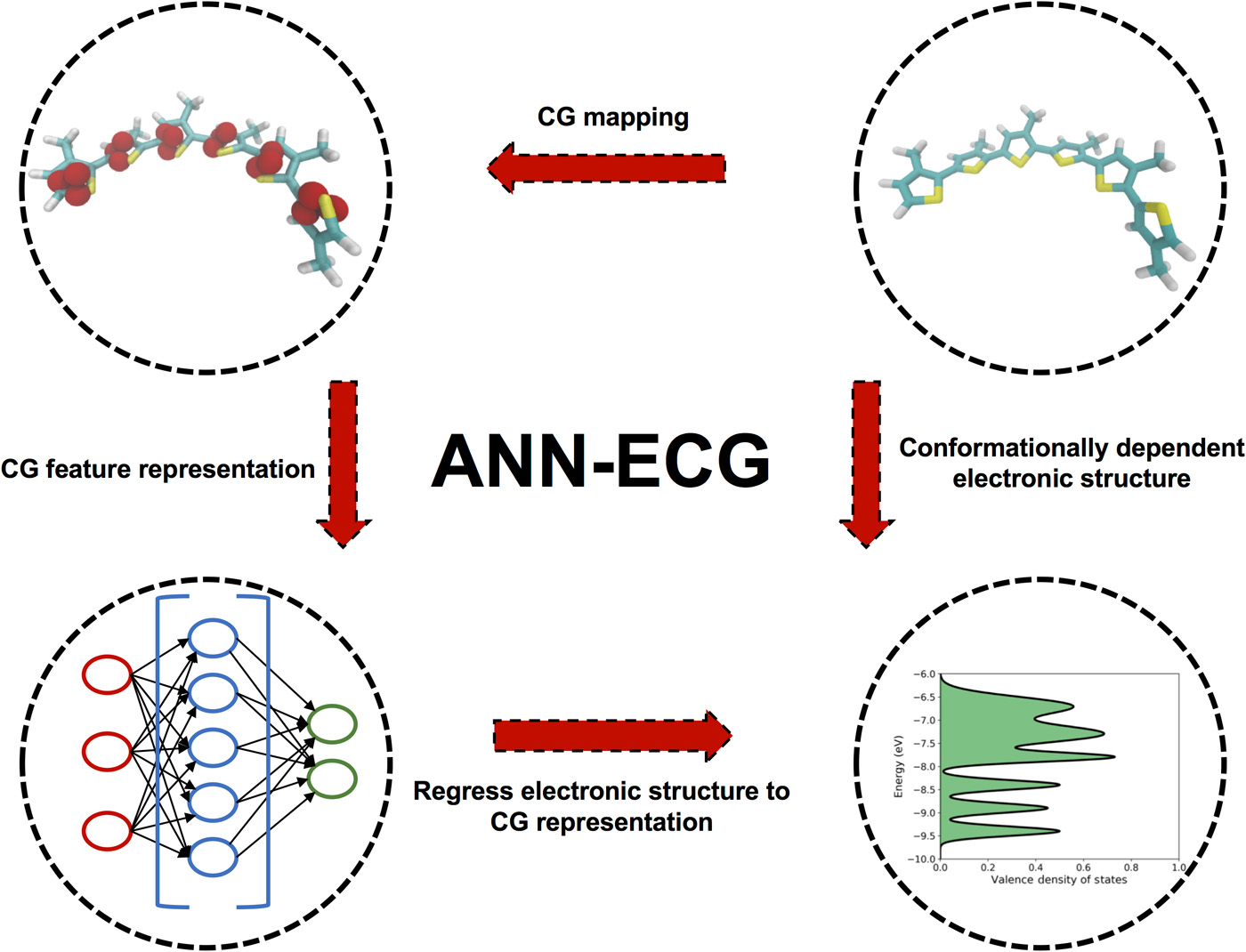
Paper on machine learning electronic structure featured by Argonne and UChicago News (3/22/19)
The Science Advances paper from the group of MICCoM researcher Juan de Pablo, titled "Electronic Structure at Coarse-Grained Resolutions from Supervised Machine Learning," uses artificial neural networks and coarse-graining to compute electronic structure across various conformations. The method finds application in the molecular engineering of organic, flexible electronics.

DOE announces Aurora, USA's first exascale supercomputer (3/18/19)
The U.S. Department of Energy (DOE) and Intel Corporation will build the first supercomputer with a performance of one exaFLOP in the United States. Auora will combine unprecedented processing power with the growing potential of artificial intelligence to help solve the world’s most important and complex scientific challenges. The announcement has been highlighted in UChicago News, the Chicago Tribune and the New York Times.
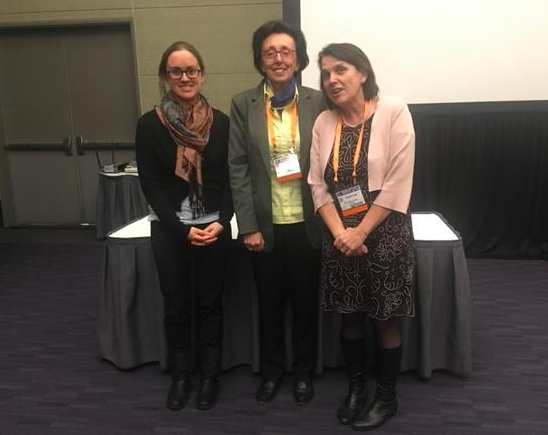
Giulia Galli delivers Materials Physics award talk at APS March Meeting (3/4/19)
Galli was the recipient of the APS David Adler Lecturship Award in Materials Physics . She delivered a talk featuring several MICCoM codes, titled "Sorting through messy semiconductors with first principles calculations." She is pictured together with fellow APS prize recipients Julia Mundy (George E. Valley, Jr. Prize) and Claudia Felser (James C. McGroddy Prize for New Materials).
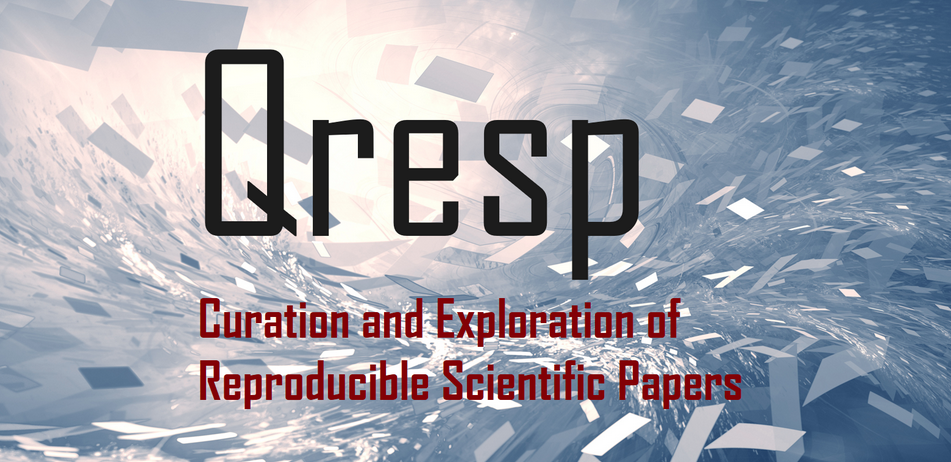
Paper on data curation and data sharing featured by UChicago News (2/12/19)
The Scientific Data paper by MICCoM researchers including Giulia Galli, Marco Govoni, and Juan de Pablo, is titled "Qresp, a tool for curating, discovering and exploring reproducible scientific papers." Qresp offers a distributed model for intuitive documentation of codes, curation of workflows, and publishing of computational data. It is the cornerstone of the MICCoM data effort. Qresp can be explored and downloaded at http://qresp.org. It was also featured as a MICCoM scientific highlight.
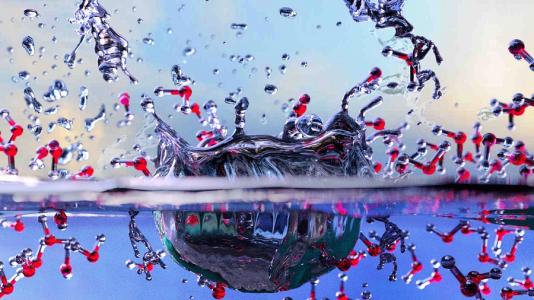
New EFRC on Water featured by Argonne National Laboratory (2/7/19)
The Advanced Materials for Energy-Water Systems (AMEWS) Center is a new DOE Energy Frontier Research Center conducting research that enables the availability of clean water. MICCoM is collaborating closely with AMEWS in both expertise and codes to understand the fundamental behavior of water at surfaces with the development of applications in mind, including water disinfection and catalysts to degrade water pollutants.

Paper on polyelectrolyte complexes featured in Notre Dame News and JACS research spotlights (1/11/19)
The JACS paper by MICCoM researcher Jonathan Whitmer, titled "Role of Associative Charging in the Entropy–Energy Balance of Polyelectrolyte Complexes" uses the SSAGES suite to compute free energy profiles between polymer chains. The conclusions find application in molecular capture and release technology and layer-by-layer assembly of films. It was also featured as a MICCoM scientific highlight.
MICCoM holds Scientific Advisory Board meeting (9/20/2018)
The annual Scientific Advisory Board meeting was held at Argonne National Laboratory. Members of the Scientific Advisory Board met with MICCoM PIs and participants to discuss current work and future directions of the center. Presentations included talks and posters on developments in software, validation strategies, and data infrastructure within the center.

Giulia Galli awarded 2019 David Adler Lectureship Award in the Field of Materials Physics (9/14/18)
The APS David Adler Lecturship Award in Materials Physics recognizes "outstanding contributors to the field of materials physics, noted for quality of research, review articles, and lecturing." Galli has been awarded "for the invention of methods, especially for the enhancement of ab initio molecular dynamics, to understand, predict, and engineer the electronic and structural properties of materials." She will receive the award at the 2019 APS March Meeting in Boston.

Giulia Galli awarded 2018 Materials Research Society Theory Award (9/12/18)
The MRS Materials Theory award recognizes "exceptional advances made by materials theory to the fundamental understanding of the structure and behavior of materials." Galli has been awarded for "the development of advanced first-principles simulation methods and their application to the understanding, prediction, and design of complex nanostructured materials." She will receive the award at the 2018 MRS Fall Meeting & Exhibit in Boston.
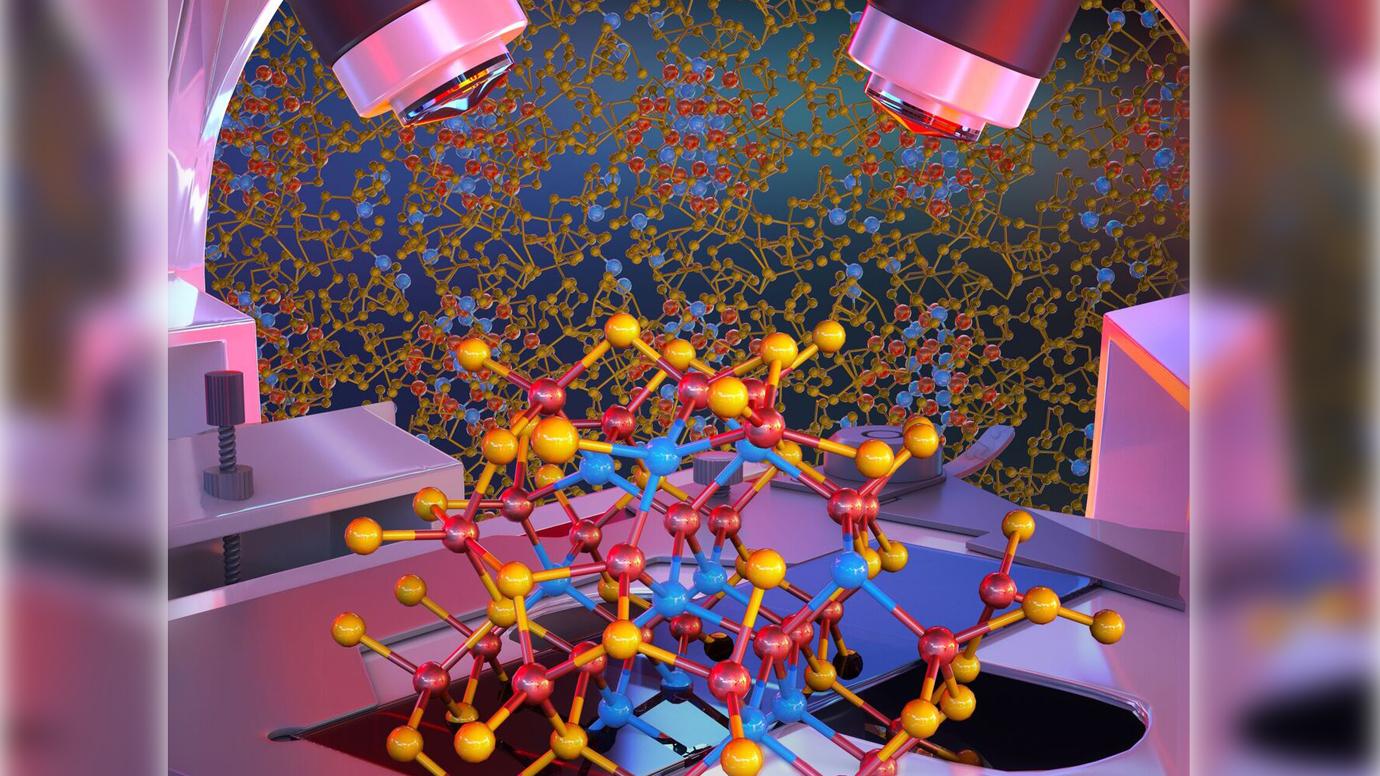
Paper on nanocrystalline solids featured in UChicago News (7/18/18)
The Nature Nanotechnology paper by MICCoM researchers Giulia Galli and Dmitri Talapin, titled "Surface chemistry and buried interfaces in all-inorganic nanocrystalline solids" used the Qbox code to analyze nanoparticles capped with ligands for application in optoelectronic and photonic technologies.

Dept. of Energy taps Argonne to lead effort focused on advanced materials for energy-water systems (7/2/18)
Argonne has been chosen to lead a new Energy Frontier Research Center on the energy-water nexus. Argonne will partner with the University of Chicago and Northwestern University on the four-year project.
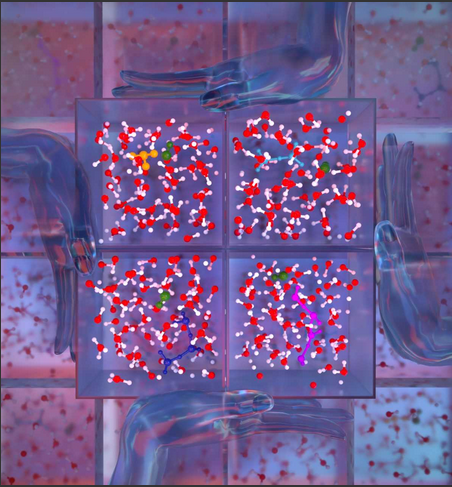
Paper on high pressure water featured in UChicago News (6/20/18)
The PNAS paper, by Giulia Galli, titled "Ab initio spectroscopy and ionic conductivity of water under Earth mantle conditions" uses the Qbox code to analyze water at geophysically relevant conditions.

Launch of Qresp
MICCoM has developed the open source software Qresp: “Curation and Exploration of Reproducible Scientific Papers” to facilitate the organization, annotation and exploration of data presented in scientific papers. Qresp may be used to both curate data presented in scientific papers or explore curated scientific papers.

Timothy Berkelbach awarded Sloan Research Fellowship in chemistry (2/15/18)
The Sloan Research Fellowships promote fundamental research by early-career scientists, in recognition of distinguished performance and a unique potential to make substantial contributions to their field. Timothy Berkelbach's research focuses on electronic and optical properties of novel nanoscale materials.
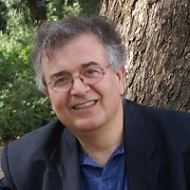
Mercouri Kanatzidis awarded Chemical Pioneer Award by the American Institute of Chemists (2/13/18)
The award recognizes those "who have made outstanding contributions which have had a major impact on advances in chemical science and industry and/or the chemical profession." Kanatzidis was selected to receive this award for his work defining the field of chalcogenide compounds (sulfides, selenides, and tellurides).
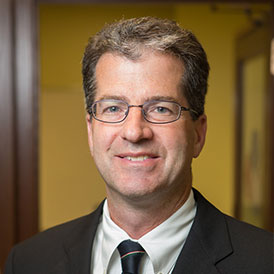
Paul Nealey elected to the National Academy of Engineering (2/7/18)
Nealey was recognized "for the development of directed self-assembly of block copolymers as an industrially significant process for nanolithography." His research often collaborates closely with computational efforts within MICCoM.
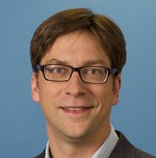
Jonathan Whitmer wins NSF CAREER award (1/26/18)
Whitmer was awarded the NSF's most prestigious award for early-career faculty for "Designing Colloidal Materials By Tilting the Free Energy Surface." The award supports the use of powerful computational modeling to develop a comprehensive picture of the clusters colloidal materials are likely to assemble into, and how specific aggregates may be achieved by modifying the structure and composition of colloidal particles.
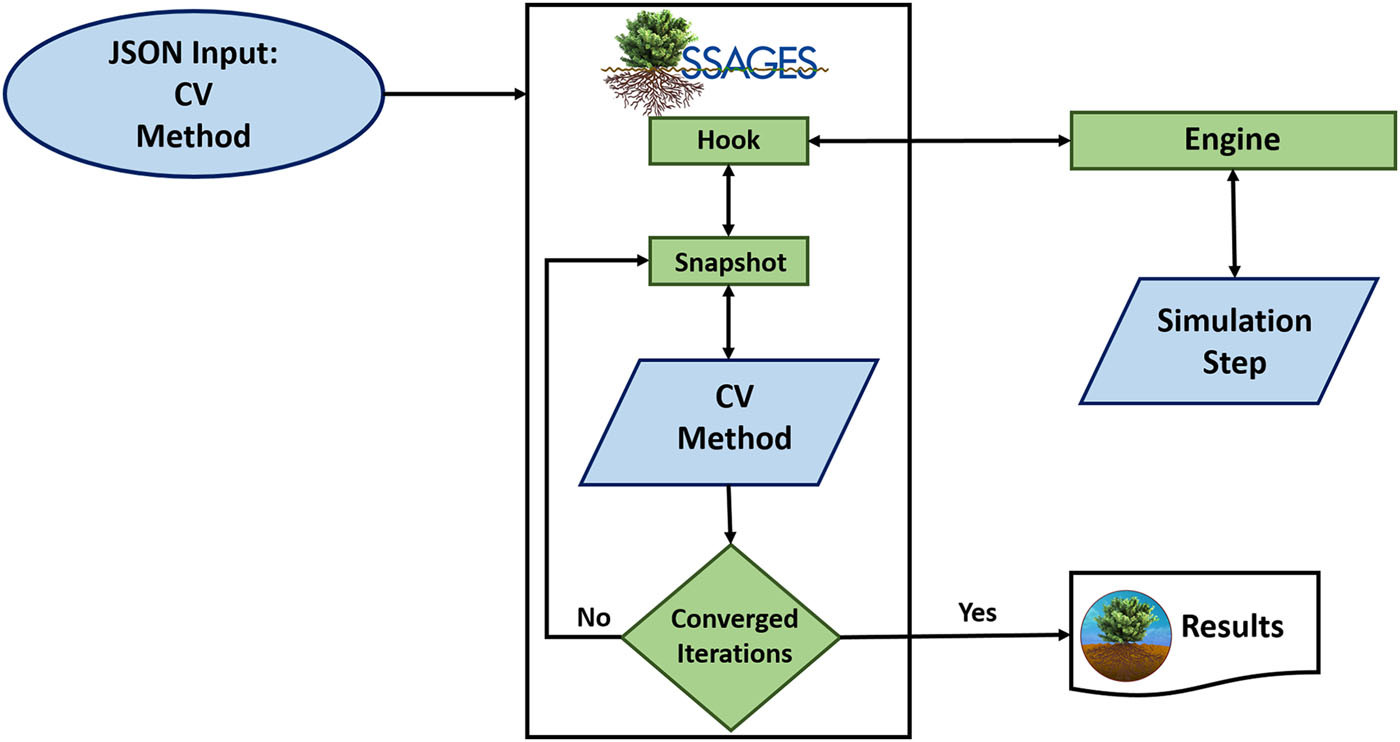
SSAGES paper published in J. Chem. Phys. (1/22/18)
Paper on Software Suite for Advanced General Ensemble Simulations (SSAGES) methodology and examples was published, from Juan de Pablo and Jonathan Whitmer research groups.
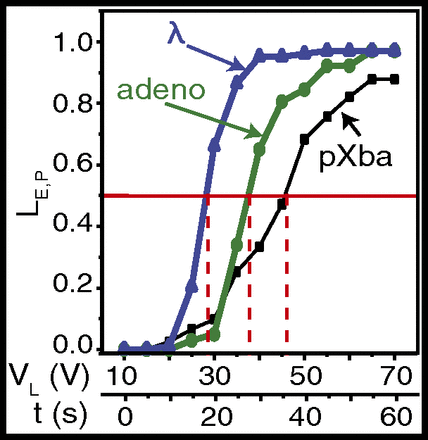
Paper by Juan de Pablo published in PNAS (12/4/2017)
Paper published in PNAS Electrostatic confinement and manipulation of DNA molecules for genome analysis by Juan de Pablo and collaborators, highlights COPPS validation example.

Juan de Pablo Receives 2018 APS Polymer Physics Prize
Professor Juan de Pablo has received the APS Polymer Physics Prize, given annually by the American Physical Society (APS), "for his innovative models and algorithms for the simulation of macromolecular systems." This prize was established in 1960 with The Dow Chemical Company now serving as chief supporter. The prize recognizes outstanding accomplishment and excellence of contributions in polymer physics research. It consists of $10,000 and a certificate citing the contributions made by the recipient. For more information on the APS Polymer Physics Prize, please visit here
.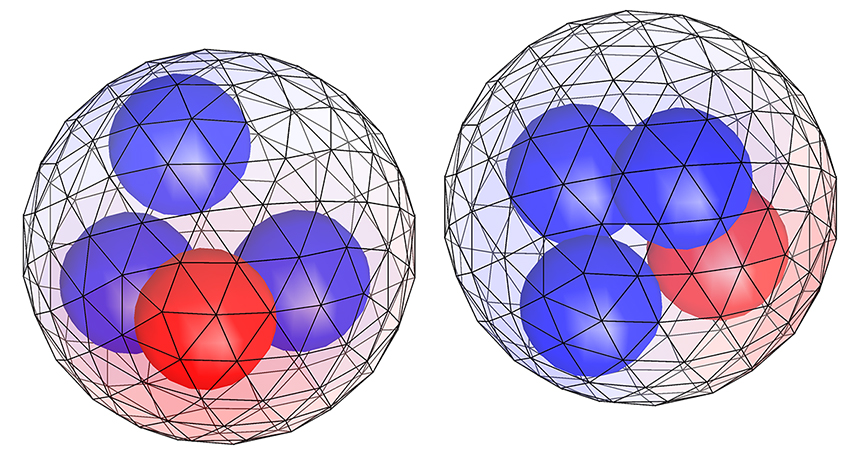
Paper by Olvera de la Cruz published in Phys. Rev. Lett.
Paper published in Phys Rev Lett "Understanding Rare Earth Emulsions" by Monica Olvera de la Cruz and collaborators, highlighted on the DOE office of science home page.
Paper selected as Editor's Choice article by J. Chem. Phys.
The paper entitled "Parallel O(N) Stokes’ solver towards scalable Brownian dynamics of hydrodynamically interacting objects in general geometries" co-authored by X. Zhao, J. Li, X. Jiang, D. Karpeev, and Argonne researchers Heinonen and de Pablo, describes new, highly parallel algorithms (and the corresponding software) for calculation of hydrodynamic interactions in suspensions of nano-and micro-particles. The article has been chosen as a 2017 Editor's Choice article by The Journal of Chemical Physics. The new software is distributed as part of the COPSS suite by MICCoM.
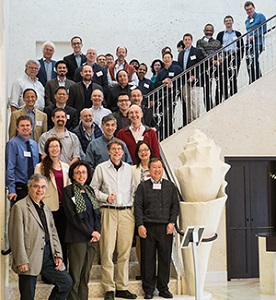
APS launches Physics Next Meetings
A new series of topical workshops hosted by the editors of the Physical Review kicks off with materials design and discovery.
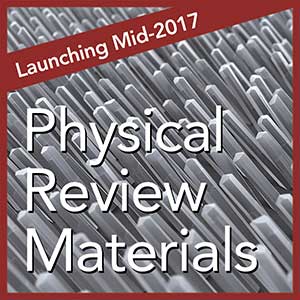
APS launches Physical Review Materials
Giulia Galli has been named to the Editorial Board of Physical Review Materials
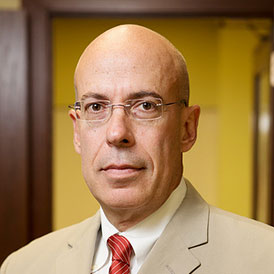
Juan de Pablo elected to the National Academy of Engineering
Juan de Pablo has been elected to National Academy of Engineering, for “design of macromolecular products and processes via scientific computation.”
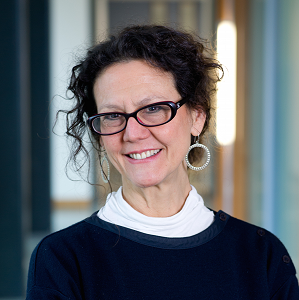
Monica Olvera de la Cruz received the 2017 Polymer Prize of the APS
Monica Olvera de la Cruz has been awarded the 2017 Polymer Prize of the American Physical Society, “for outstanding contributions to the theoretical understanding of polymers, and the effects of electrostatic interactions on their structure and properties.”

Argonne OutLoud public lecture on Computational Materials Modeling by Maria Chan
Maria Chan recently gave an Argonne OutLoud public lecture on Computational materials modeling at Argonne, entitled "From Atoms to Clean Energy Technologies".
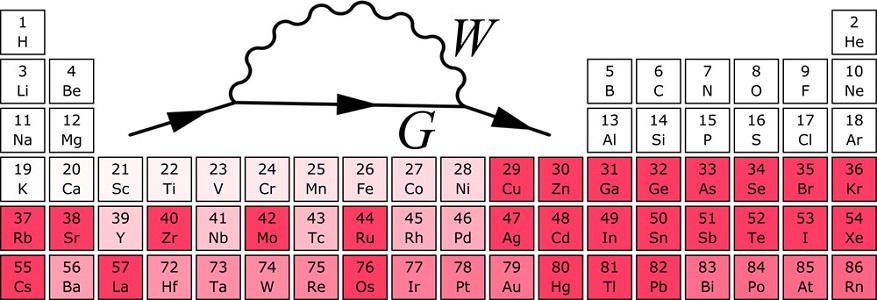
WEST Data Collections are live - 20 June 2016
New WEST Data Collections provide open web-based access to electronic structure properties computed with WEST. Explore the GW100 and GWSOC81 sets.

MICCoM Wiki space - June 2016
A new Wiki space, hosted at the University of Chicago, is now accessible to all MICCoM members, allowing for smooth communications, exchange of ideas and circulation of knowledge within the Center.
ALCC Computational Time Award 2016 to MICCoM members
Marco Govoni and Alex Gaiduk received a 2016 ASCR Leadership Computing Challenge Award
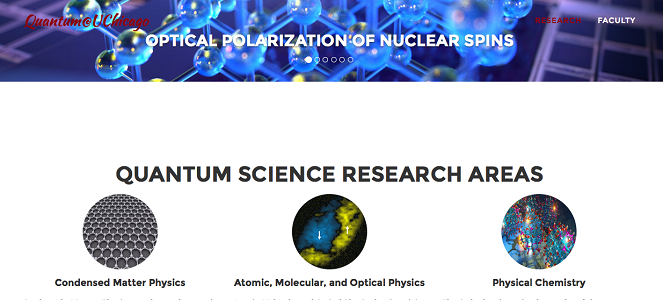
Quantum Science Research website live

New Release of WEST - April 2016
The WEST code now includes option to obtain optical coefficients of solids and molecules, including local field effects.
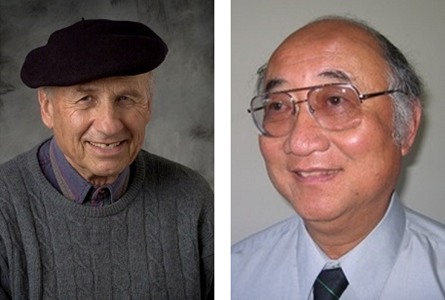
Giulia Galli gives one of the memorial lectures celebrating the 50th anniversary of Kohn-Sham Density Functional Theory
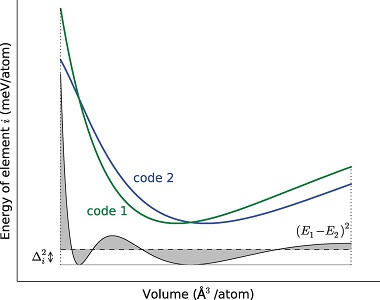
Paper appeared in Science
A paper on "Reproducibility in density functional theory calculations of solids" appeared in Science, with François Gygi as co-author.

2016 James C. McGroddy Prize to Mercouri Kanatzidis
Award Citation: For seminal contributions to the discovery of new families of thermoelectric materials with the highest known figure of merit.

ACS Award in Inorganic Chemistry honouring Mercouri G. Kanatzidis
Award Citation: For pioneering achievements in the development and understanding of metal chalcogenide chemistry.
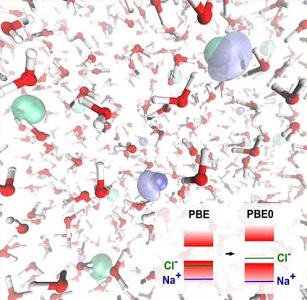
INCITE computational time award 2015 to Giulia Galli

ESP computational time award 2015 to Giulia Galli
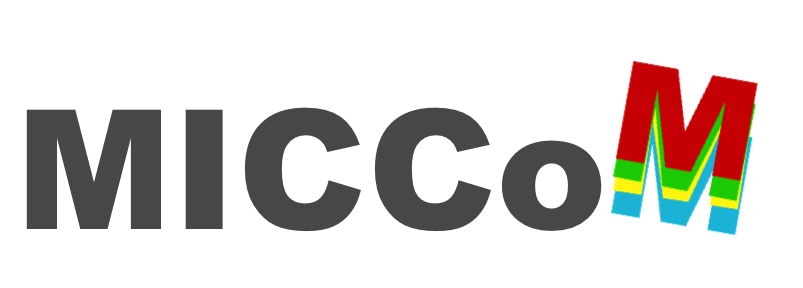
DOE announces Computational Materials Sciences Awards
One of the three centers, MICCoM (Midwest Integrated Center for Computational Materials) is established at Argonne National Lab and is led by Prof. Giulia Galli. MICCoM's mission is to develop open-source advanced software tools to help the scientific community model, simulate and predict the fundamental properties and behavior of nanoscale and mesoscale materials for energy conversion technologies — including metastable materials assembled far from equilibrium conditions.